+ Valor Cer
A research, development and innovation (RDI) project, which aims through a set of critical phases to respond to the challenges identified, such as management, digital transformation, the transition to the bioeconomy, the reduction of environmental impacts and sustainability.
Taking advantage of the “Excellence in the production organization” initiative, an RDI project will be developed which, through different critical phases, can identify the areas/themes with a real impact on production organizations, focused on the necessary dual green and digital transition, capable of simultaneously contributing to improving the food trade balance in an economically, socially and environmentally sustainable manner. This project therefore appears to be fundamental to the modernization of the cereals sector, which, faced with the growing and repeated demands placed on it on a daily basis, must modernize and enhance national production, as this is the only way to increase the competitiveness of its producers and their organizations in a globalized world.
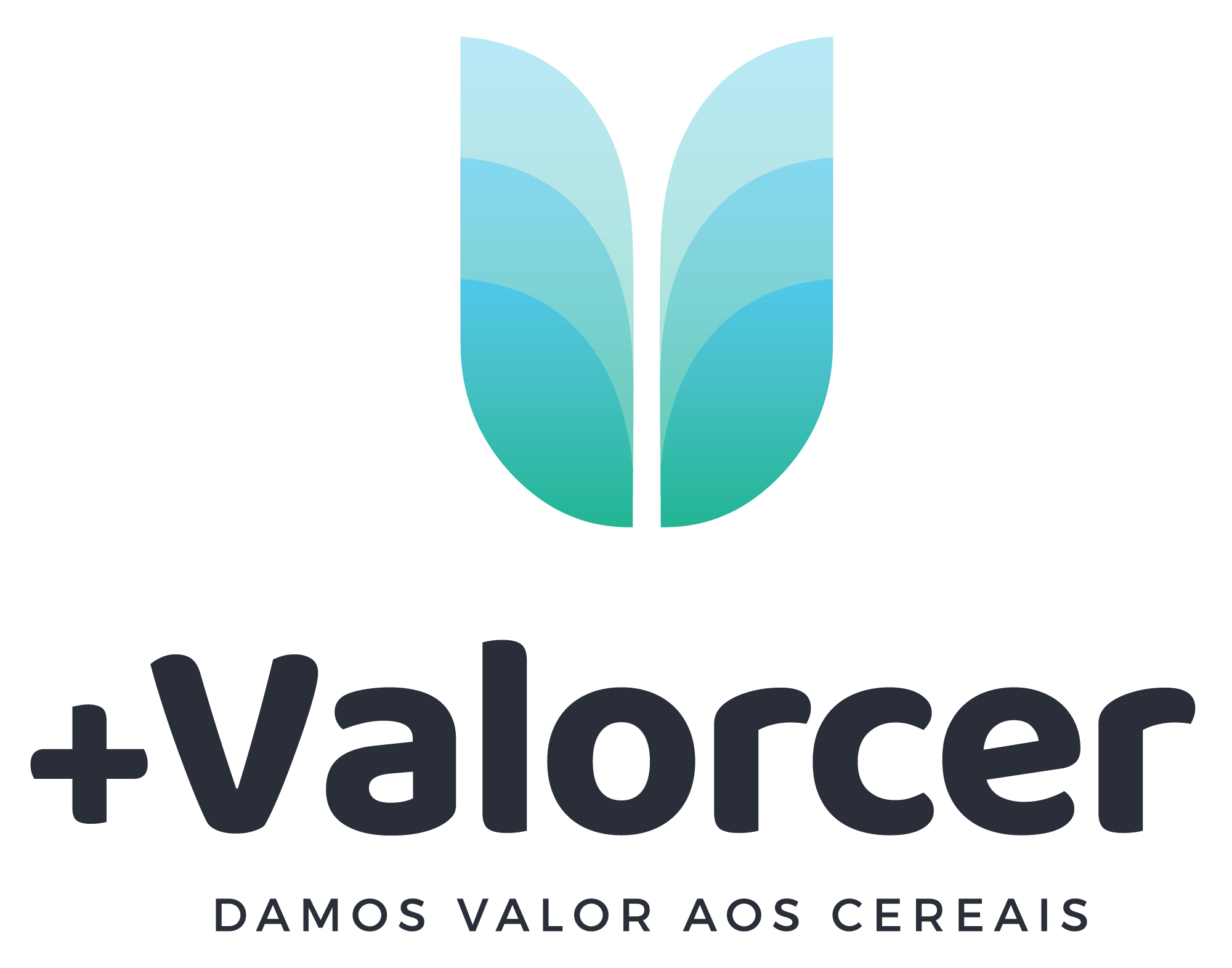
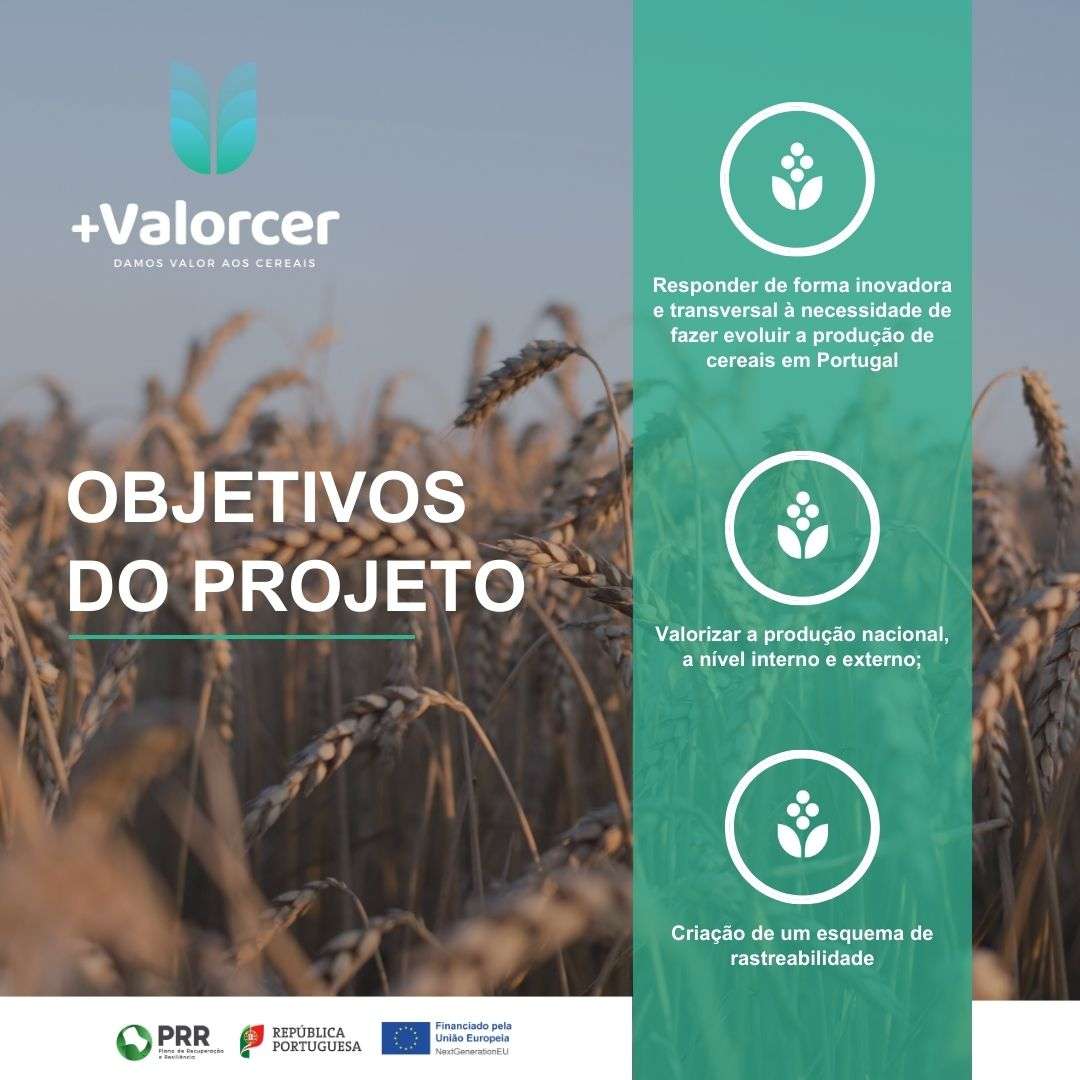


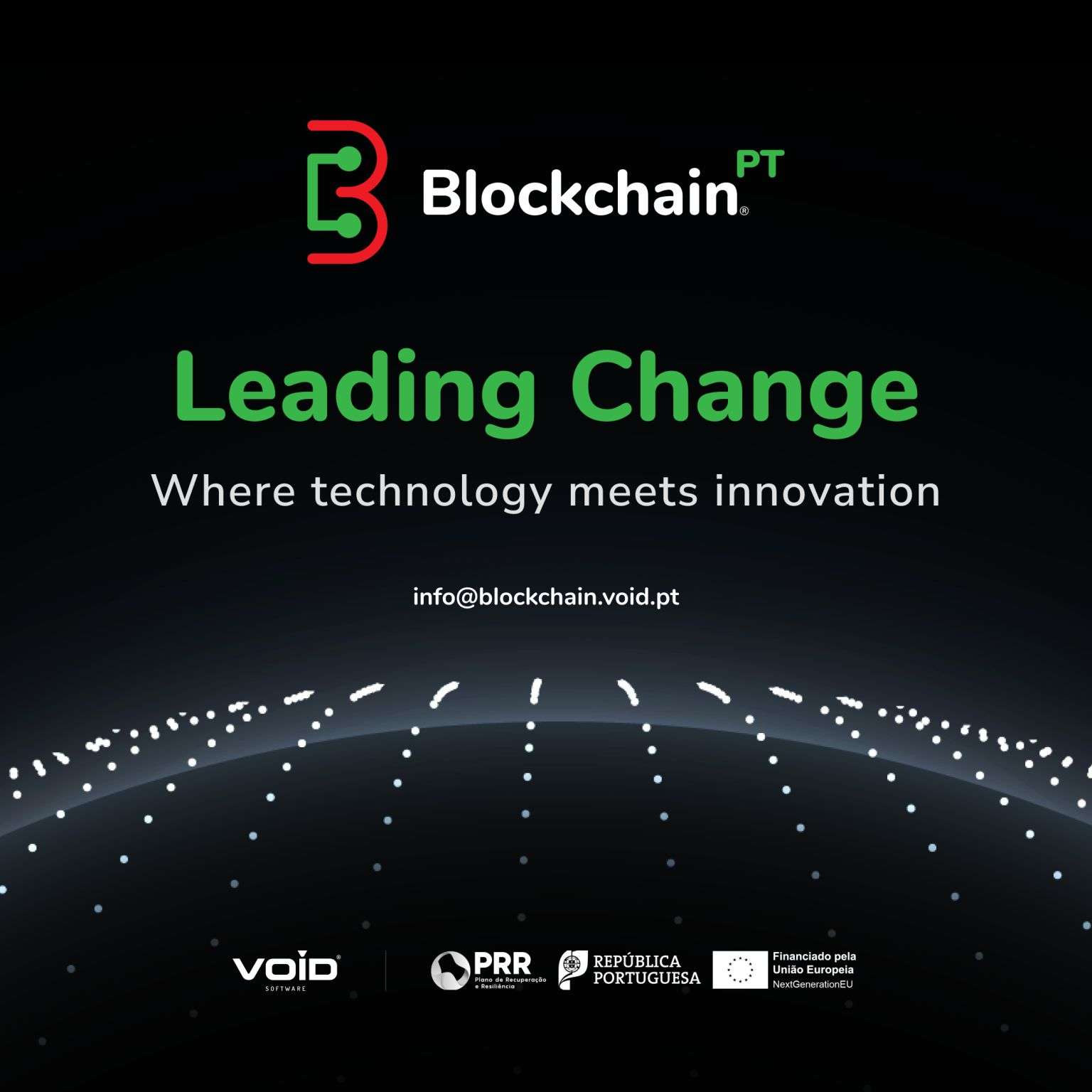
Agenda Descentralizar Portugal com Blockchain (BLOCKCHAIN.PT)
The Agenda “Decentralize Portugal with Blockchain” aims to create a national blockchain chain, with the vision of the importance of technology as an engine of innovation and the objective of taking advantage of the global business opportunities generated by this technology.
It brings together 56 organizations (24 companies, 15 ENESII, 2 Associations, 5 public entities and 10 associated partners), under the leadership of VOID Software, organized in:
6 WP verticals, namely:
- Agriculture and Agro Food;
- Health;
- Sustainable and Smart Territories;
- Sports, Leisure and Culture;
- New Knowledge Economy;
- Digital Asset Management;
and 4 horizontal WP:
- Management;
- Training;
- Innovation and Dissemination;
- Interoperability.
The results of these partnerships, with an investment of more than 72 million euros, will allow the launch of 26 products with high export potential and scalability.
The line created in this Agenda will allow Portugal to be a European leader in this technology, helping the country to be more digital, green and resilient.
Agenda Accelerate and Transform Tourism
The “Accelerate and Transform Tourism Agenda” was one of the projects selected under the Mobilizing Agendas for business innovation of the Recovery and Resilience Plan (PRR). This agenda is promoted by a business and academic consortium of 44 entities, jointly promoted by the Confederation of Tourism of Portugal (CTP), Turismo de Portugal and NEST – Tourism Innovation Centre, and proposes to develop and implement an advanced and innovative concept of “Costumer Journey”, which will involve the implementation of disruptive and innovative solutions in selected focuses throughout the tourist experience. The recommended solutions intend to cover both the tourist attraction phase and the complete journey throughout the experience, including after the end of the experience.
It is intended, thus, to contribute to the change of the profile of specialization in the area of Tourism and in the Portuguese economy in general, to provide companies with greater technological capacity and innovation, also allowing a requalification and specialization of human resources and the reduction of CO2 emissions, taking into account the necessary climate transition.
To achieve this objective, the project/Agenda will focus on 8 implementing axes, namely:
- Digitization directed to the entry and exit of tourists – Airports (digital pillar);
- Digitization of Territories (digital pillar);
- Conversation with the Tourist (digital pillar);
- Experience 5.0;
- Digitalization – Tourist experience (digital pillar);
- Digital and Ecological Transformation in Mobility;
- Sustainability of the Tourism Sector;
- Management, Promotion and Communication Agenda.
It is intended to achieve a high level of digitalization and sustainability in tourism.
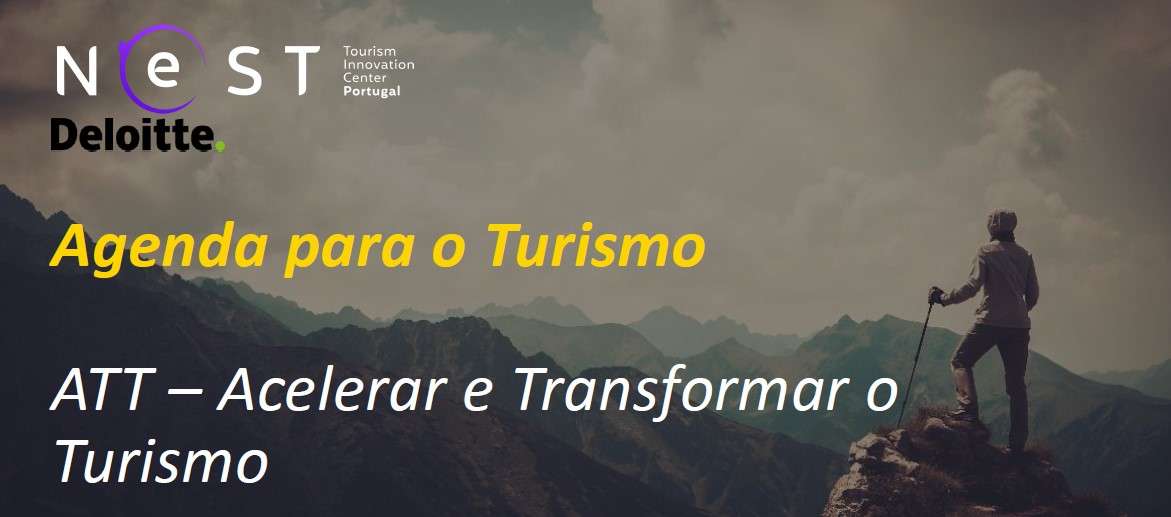

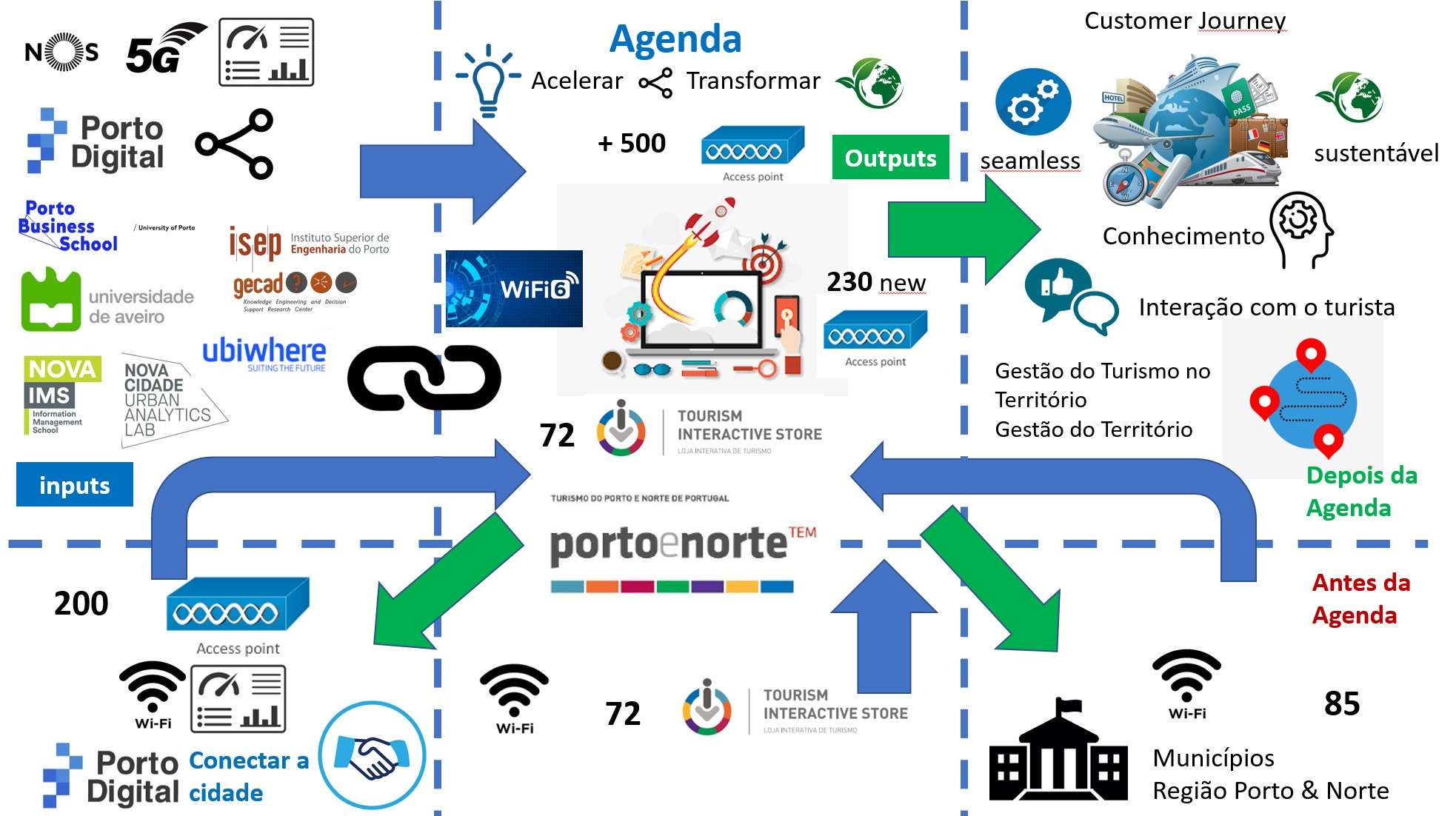
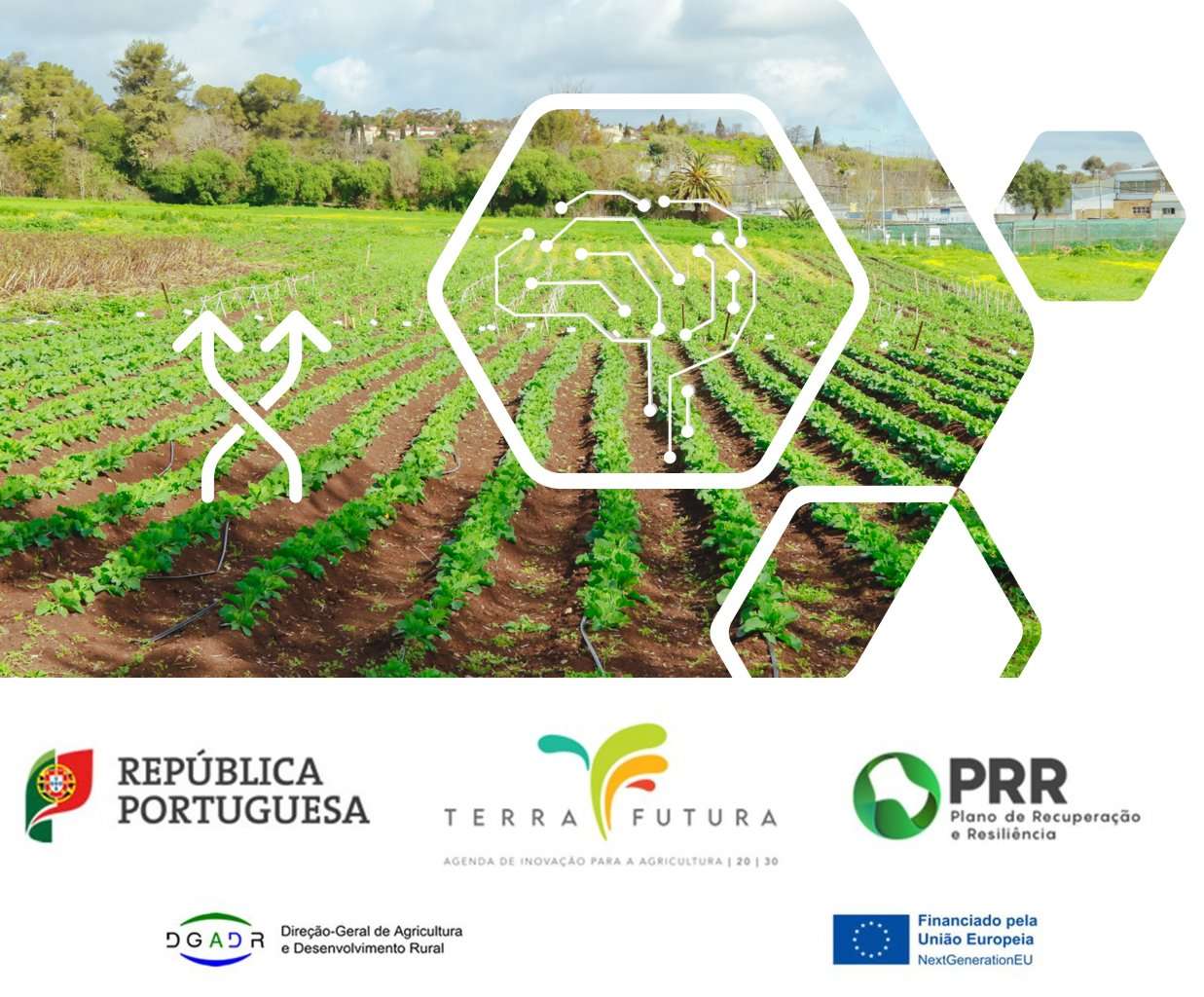
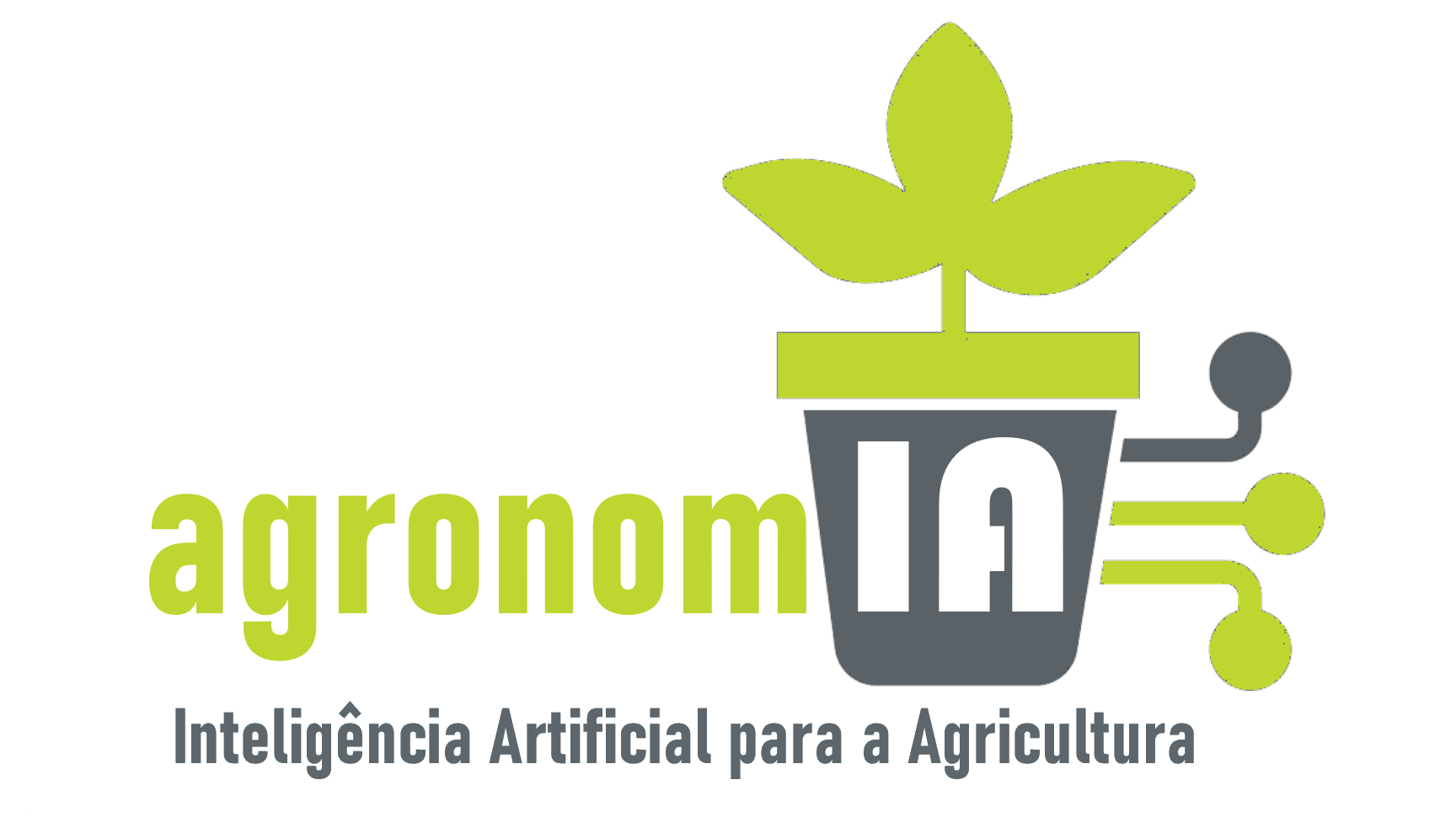
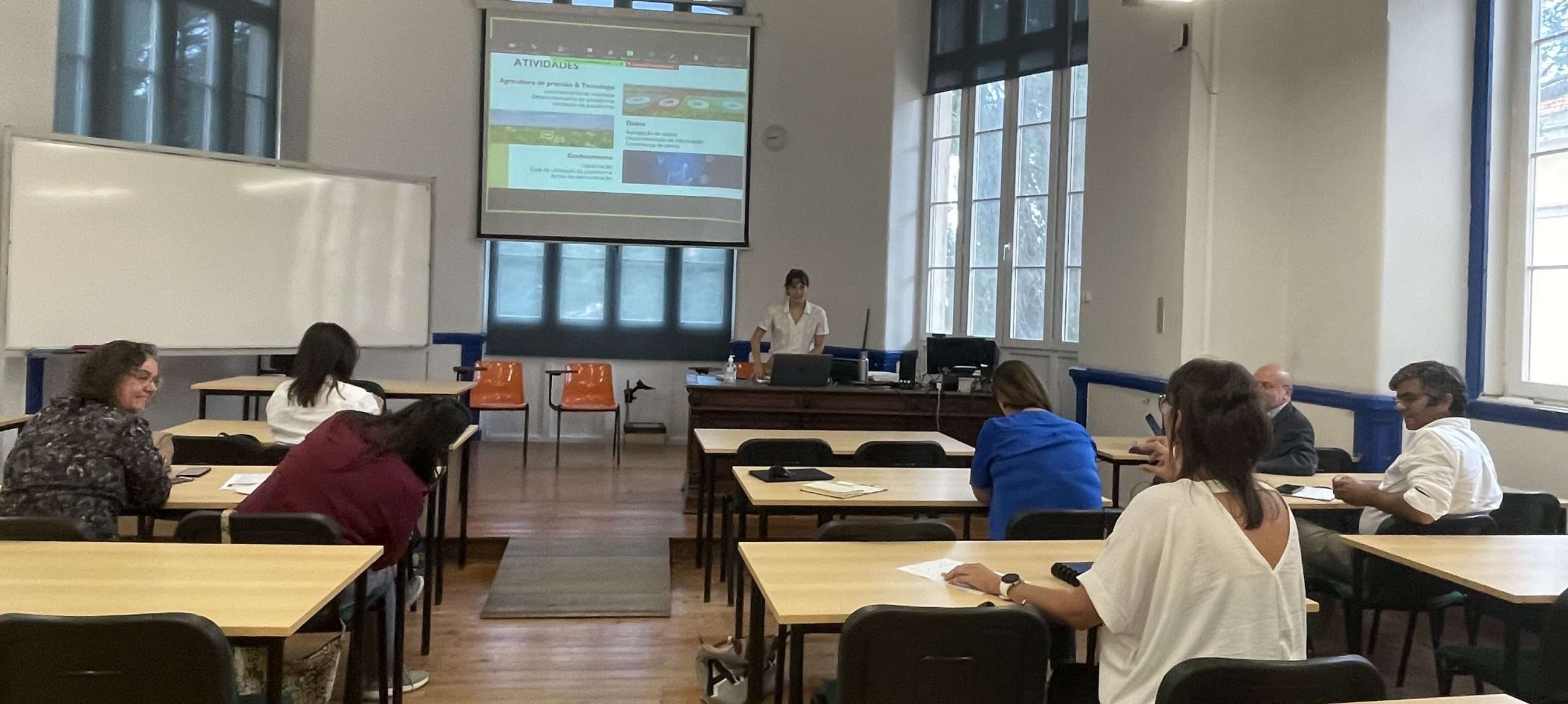
Agricultura Aumentada e Sustentabilidade – Explorando o potencial da realidade aumentada e virtual numa Agricultura 4.0
The project aims to create a Development, Demonstration and Training Hub that will allow the mass adoption of a digital and sustainable agriculture, regardless of the size of the farms, through the adoption of augmented and virtual reality technologies. Benefiting from the experience of its partners, this Hub intends to present itself as a reference for the sector, contributing to the development of digitalization in agriculture, through the demonstration, dissemination and training of technology that allow a more Digital Agriculture.
The activities will focus on the following spaces of opportunity as it will take advantage of the integration of data from multiple sources (sensors, machines, models) and formats to dynamically and in real time “deliver” to the farmer in the field the information he needs to make decisions:
- Real-time data and production insights: farmers can view real-time information in the field, such as NDVI collected from the Copernicus system, available soil water from sensors, weather conditions by earth observation and forecasts of productivity, of its exploitation, accelerating and facilitating the decision-making process;
- Increased production: optimised crop treatment through precision agriculture, smarter irrigation management, differentiated phytosanitary treatment, or heterogeneous crop management will maximise the production of a given crop leaf;
- Efficient Use of Water: Weather forecasts combined with soil moisture sensors, will allow the management of irrigation machines applying water only where, when and how much is needed;
- Reduced operating costs: Automating and optimizing seeding, treatment, and harvesting processes can reduce resource consumption, human error, and overall cost;
- Increasing Production Quality: Analyzing production quality and results in correlation with treatment can help farmers adjust processes to increase product quality;
- Accurate assessment of the farm and the plot: accurate knowledge of production per unit of production over time allows a detailed prediction of the future yield of the harvest and its value;
- Remote monitoring: Augmented reality offers the possibility to monitor multiple fields in multiple locations simultaneously from the Internet and via satellite information. Decisions can be made in real time and from anywhere;
- Equipment monitoring: agricultural equipment can be monitored and maintained according to the evaluation of production rates, effectiveness and efficiency of labor and prediction of failures;
- Reduction of the environmental footprint: make more effective conservation efforts, such as the use of water, fertilizers, phytosanitary, without neglecting the increases in production per unit of land, which directly affect the environmental footprint in a positive way;
- Mitigation of impacts with the adoption of new environmental technologies – “nature based solutions” and/or decentralized wastewater treatment systems with agricultural applications (water reuse, phosphorus recovery, composting).
Areas of Work and responsibilities of each partner:
- Coordination of the project and management of the Hub: ISA;
- Survey and characterization of reality: ISA, DGADR, FNOP, PME;
- Design of the action strategy for in situ collection of data for design, development, and validation of the platform: ISA, FNOP;
- Development of the information management platform and its delivery in the form of augmented reality for the identified use cases: NOVA IMS, ISA, NoGrid, Aromni;
- Application and validation of the platform: NOVA IMS, ISA, PME, NoGrid, Aromni;
- Training of farmers on the platform and technologies affected: CCDM, ISA, NOVA IMS, FNOP;
- Promotion of demonstration, dissemination and dissemination of the project: ISA; NEW IMS, DGADR, FNOP, CCDM, PME, NoGrid, Aromni;
Communitas
With its “Clean Energy for All Europeans” (PESCO) package, the European Commission has formally recognised and instrumentally presented community energy projects, including definitions of “Renewable Energy Communities” (RECs) and “Citizens’ Communities for Energy” (CEC). The new concepts introduced in PESCO pave the way for a more active role for EU citizens in energy markets. In order to fully realise the benefits envisaged by PESCO, it is necessary to overcome a myriad of obstacles and to make progress in clarifying and rationalising the concepts of REC and ECC, allowing for their adoption by all concerned citizens.
Motivated by this challenge, COMMUNITAS will promote energy citizenship, allowing citizens to take control of their own path to sustainability, becoming an active element of the energy system.
The project will provide a knowledge base that will provide users with technical, administrative and legal information on the Energy Communities (EC), simplifying the creation and expansion of this concept. COMMUNITAS will also provide an innovative set of tools – capitalizing on technologies such as IoT, Blockchain and Cloud Computing – to unlock active citizen participation in energy markets and communities (all integrated into an open, digital and “one-stop-shop” central COMMUNITAS (CCP) platform), enabling EC members to have an aggregate position in energy markets or exploit ancillary services using different energy assets or load profiles of the community.
Being a project that aims to put citizens at the center of energy markets, COMMUNITAS has citizens at the center of its own approach: citizens will be involved in the Social and Political Laboratories throughout the project, so as to frequently integrate their reactions, desires and needs into the project’s developments.

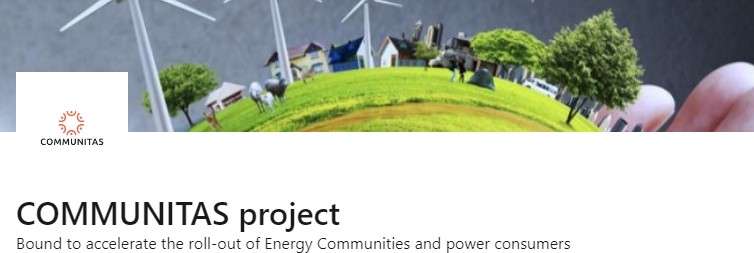
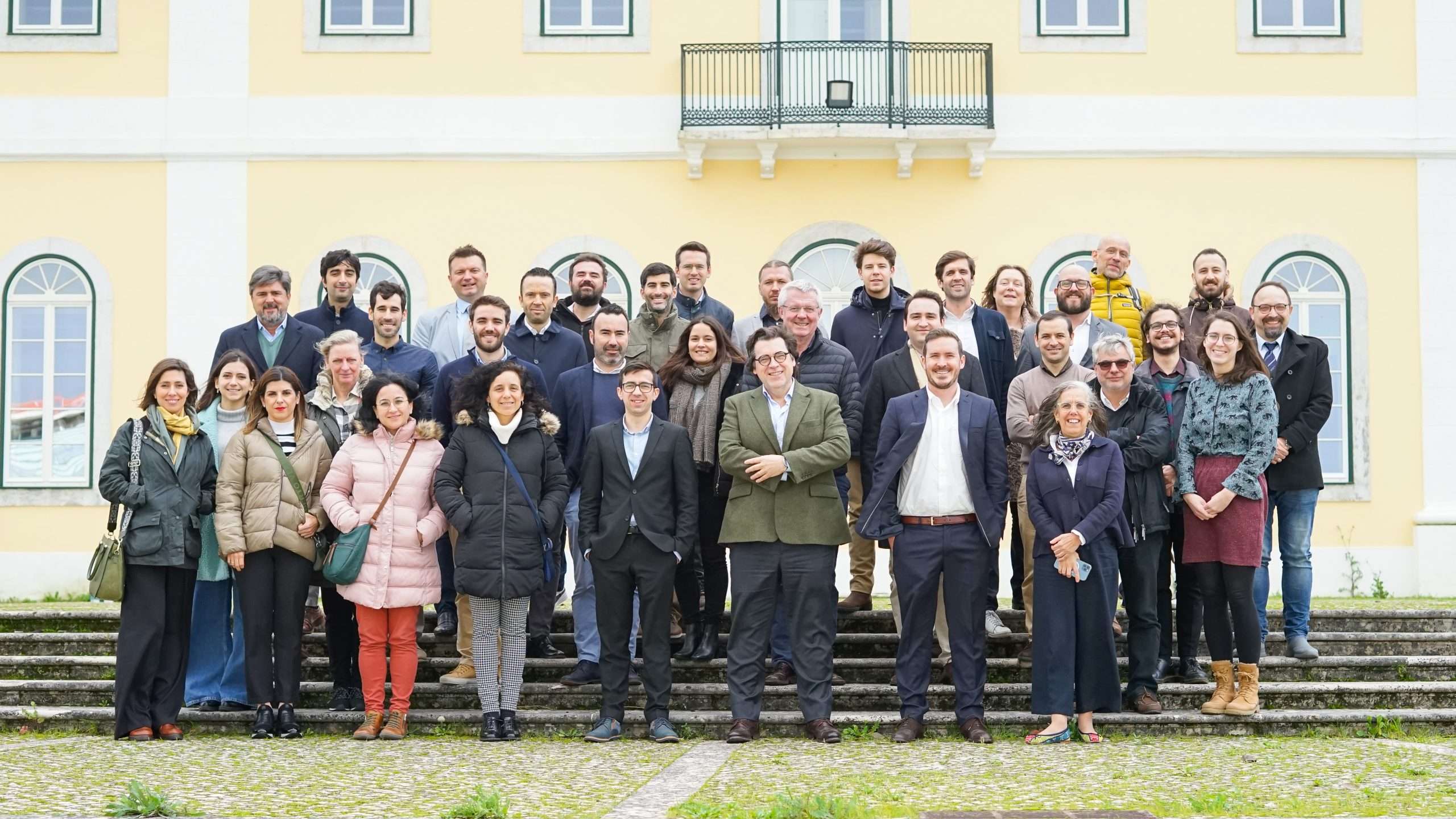
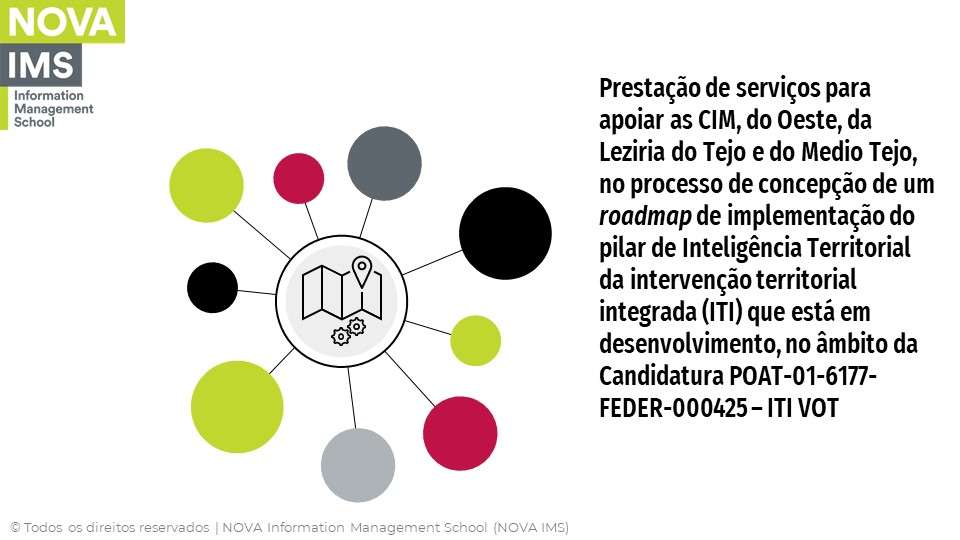
Roadmap para a implementação do pilar de Inteligência Territorial da Intervenção Territorial Integrada na CIM Oeste e Vale do Tejo (ITI Oeste e Vale do Tejo)
The project aims to support the Intermunicipal Communities (CIM) of the West, Lezíria and Médio Tejo in the process of designing a roadmap for the implementation of the territorial intelligence pillar of the Integrated Territorial Intervention (ITI) that is under development under the POAT-01-6177-FEDER-000425 – ITI VOT Application.
In this sense, for each of the CIM, an evaluation of the starting point (as is) in the double dimension of technological maturity and territorial intelligence will be carried out, and taking into account the objectives defined in ITI (to be) built a road map for its implementation.
Plataforma de Gestão da Mobilidade da região da CIM Viseu Dão Lafões (Smart Mobility)
CIM Viseu Dão Lafões application to the Operational Program of the Central Region (CENTRO-06-1406-FEDER-000111) designated “Soft Mobility in Viseu Dão Lafões – Intermunicipal Project for the Promotion of Sustainable Multimodal Urban Mobility” has approved.
In this context, CIM Viseu Dão Lafões intends to implement a Mobility Management Platform of the region (Smart Mobility), which ensures the monitoring and support of mobility management, supporting transport operations appropriate to the articulation between urban territories and territories of low population density, including flexible transport solutions and soft mobility and, in the near future, through the appropriate connectors, interoperability with more use cases and other innovative areas, in particular with subsystems that compete, especially in more urban areas, for smarter and more efficient management of territories.
The activities to be developed are as follows:
- Detailed analysis of the different data repositories existing in the context of mobility (bikesharing, public transport, flexible transport system, traffic feeds, public parking, electric charging), with regard to: data typology (internal and external); storage mode; cleaning and treatment needs; update protocols; transformation and visualization models; and their internal and external interoperability;
- Elaboration of a proposal for a basic architecture and a data and information management model necessary to ensure the quality, timeliness and stability of the repositories that will be integrated into the open data initiative (a model that, with the necessary adaptations, will also have to be ensured by external partners, if any);
- Elaboration of a state of the art of alternatives in terms of open data spatial platforms, currently in production that can be adapted to the identified objectives regardless of their architecture with regard to the basic model (open source or hybrid code);
- Elaboration of a model proposal to be followed in the implementation of the Smart Mobility platform, including the integration of the different internal sources in the bottom-up strand and the aggregation of external sources in the top-down strands;
- Development of analytical models on existing data internally and on those capable of being integrated externally, within the scope of mobility;
- Identification, characterization and development of dynamic dashboards adapted in the triple strand intermunicipal/municipal platform on the web;
- Implementation of a cockpit / management dashboard (web and smartphone), aiming to cover the need to provide information publicly, ensuring an information service of the territory by municipality, in the context of mobility, with a situation of the dynamics of the municipality;
- Support for the development of a mobility management platform for the region (Smart Mobility), which will ensure, in the near future, and through the appropriate connectors, its interoperability with more use cases and other innovative areas, namely with the subsystems that compete, especially in the most urban areas, for a smarter and more efficient management of the territories.
The platform to be implemented will aim to contribute to monitoring and supporting the management of mobility in the region, supporting the information of transport operations appropriate to the articulation between urban territories and territories of low population density, including flexible transport and soft mobility solutions.
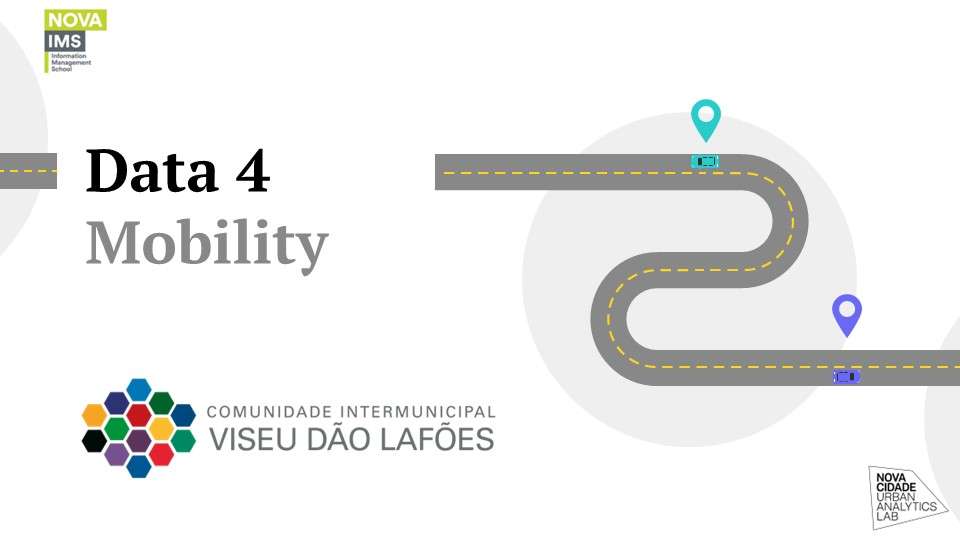
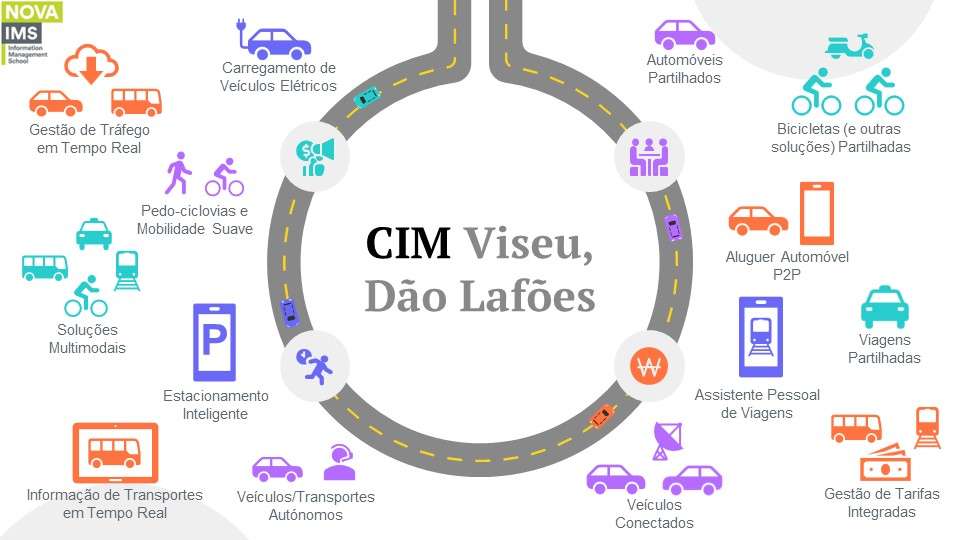
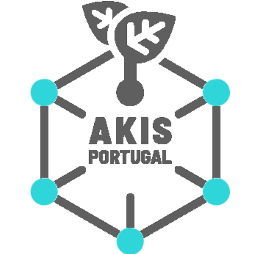
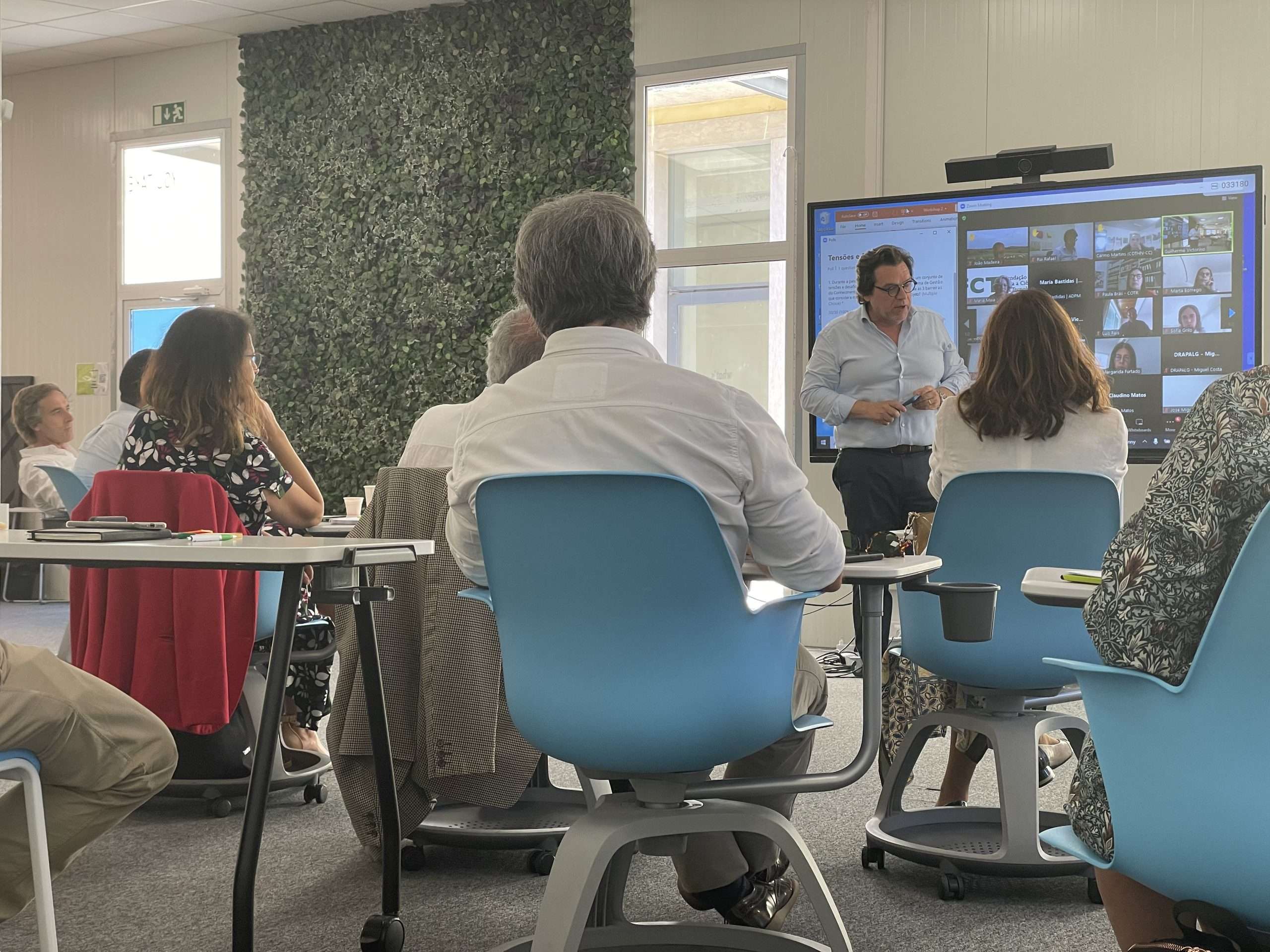
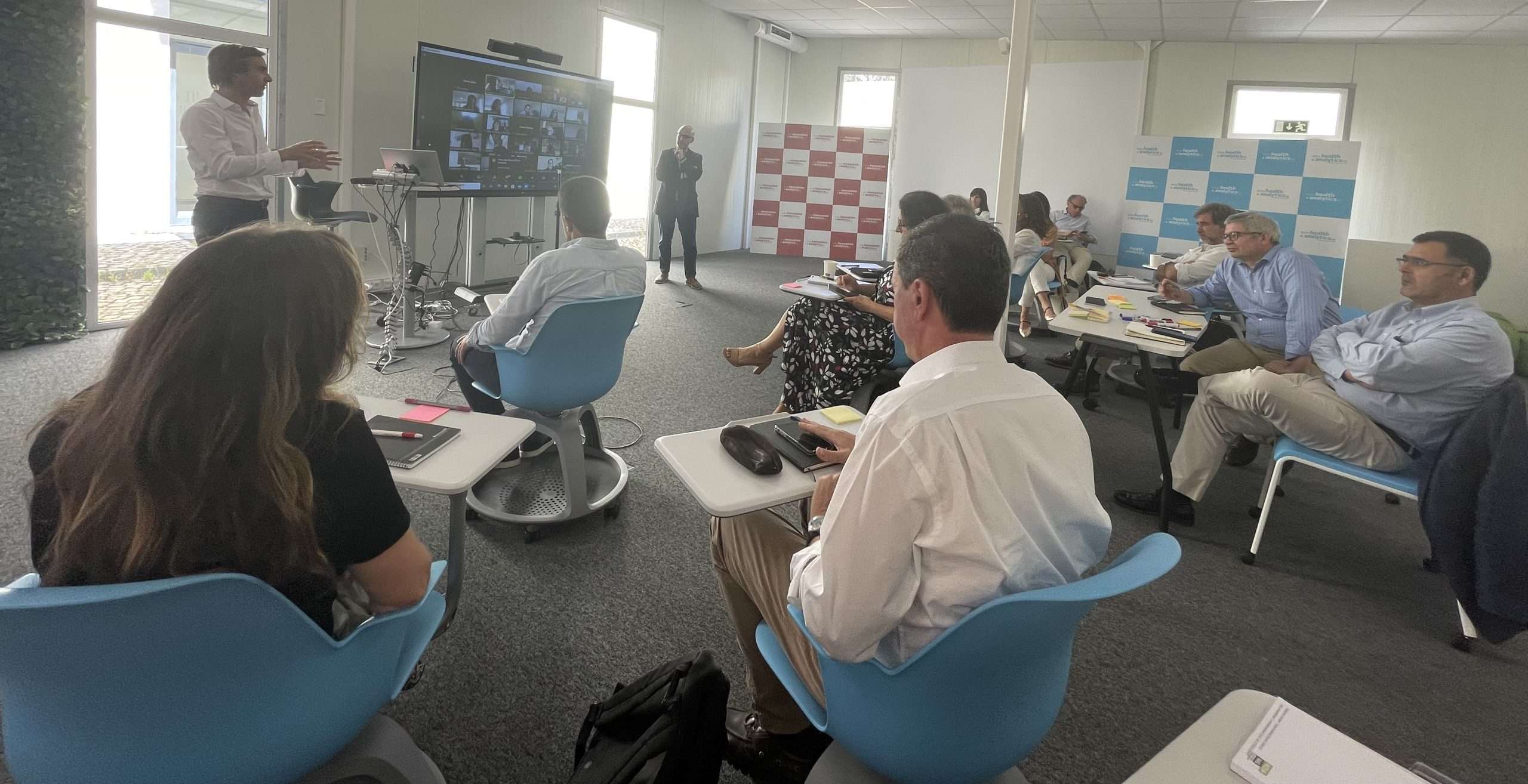
Sistema de Conhecimento e Informação Agrícola (AKIS) em Portugal
The Strategic Plan of the Common Agricultural Policy 2030 (PEPAC 2030), presented to the European Commission, establishes as a transversal objective of modernization of the sector the promotion and sharing of knowledge, innovation and digitalization in agriculture and rural areas, and encourages their acceptance, also establishing the obligation to establish a National CAP Network. The role to be played and the activities to be developed by this Network are aimed at achieving specific objectives, which include fostering the involvement of stakeholders, including counselling staff and trainers, facilitating peer learning, fostering innovation in agriculture and rural development, supporting inclusion and interaction between all stakeholders in the process of building and exchanging knowledge, focusing on producers.
Also within the scope of the Recovery and Resilience Plan (PRR), in Component 5 – Capitalization and Business Innovation, integrated in the Resilience Dimension, which aims to increase the competitiveness and resilience of the economy based on Research and Innovation (R&D), innovation, diversification and specialization of the productive structure, is part of the Innovation Agenda for Agriculture 2020-2030, which aims to promote the growth of the agri-food sector, in a sustainable and resilient way, based on knowledge and innovation, the Network has an important role to contribute to the dissemination of the results of innovation projects in partnership.
In this context, the project aims to develop an interactive information system, which will improve and strengthen the flow of innovation and knowledge in agriculture and rural territories. The system will be developed in a participatory way, integrating the end users in the process of designing the solution, in order to know their needs and requirements of access to knowledge and how best to find solutions, necessary information and new ideas, in a continuous and bi-directional way.
The success of this initiative will not only ensure compliance with the competencies of the National Rural Network and the specific objectives of PEPAC and PRR mentioned above, but also include several other valences, involving counseling technicians, trainers and other actors, creating an innovation ecosystem translated into a structured and related National AKIS system, with a high potential for creating positive externalities.
Specifically the work aims to:
- Constitution (creation and implementation) of a virtual platform to support the strengthening of National AKIS, which includes the SAAF and the National Rural Network;
- Promotion of the creation and development of a portal of open data on innovation that gathers in a single point, of free access, without charge for the user, the information obtained in the scope of innovation activities with interconnection to the relevant databases of other entities;
- Promotion and monitoring of the establishment and operation of an online monitoring panel (dashboard), supported by the portal referred to in the previous paragraph, which includes the monitoring of the official reporting indicators of PEPAC and PRR.
Study of the Integration of Digital Strategies in the Management of Packaging Waste in the Context of Smart Regions, within the Scope of the Oeste + Recicla Project
Provision of technical support services for the preparation of the Study of the Integration of Digital Strategies in the Management of Packaging Waste in the context of Smart Regions, within the scope of the Oeste + Recicla project, funded by the Program “Environment, Climate Change and Low Carbon Economy”, of the EEA Grants 2014-2021.
The Project aims to establish a deposit refund system for non-reusable beverage bottles in Portugal. The objective is to increase the application of circular economy principles in specific sectors, in production and consumption, through the implementation of a deposit and return system for plastic bottles in all Municipalities of the West Region involving a partner from Norway – Empower, an entity with experience in building a global plastic waste ecosystem based on the same philosophy as the Norwegian bottle deposit system through the use of technology.
The incentive system consists of awarding a prize to the final consumer for the return of non-reusable plastic beverage packaging, with a view to guaranteeing its forwarding for recycling and the production of high quality recycled material, compatible with the necessary requirements for the incorporation in the production of new beverage bottles, promoting the maximization of the circularity of recovered materials.
The general objectives of the Project are:
- Increase the application of circular economy principles in the beverage bottle sector;
- Contribute to the implementation of deposit solutions for plastic bottles;
- Contribute to the implementation of the pilot deposit refund system for non-reusable beverage packaging, namely plastic bottles;
- Contribute to the selective collection of non-reusable plastic beverage packaging waste, aiming to achieve a direct positive impact on collection rates, the quality of the material collected and the quality of recycled materials, generating opportunities for the recycling sector and the recycled materials market;
- Contribute to the increase in the collection and recycling of beverage bottles, with a view to meeting European and national targets for the selective collection of beverage bottles and the recycling of plastic packaging waste;
- Promote and develop advanced reverse logistics systems for the recovery of packaging that will include any categories of beverages sold on the national market for the final customer, as well as plastic/metal packaging;
- Promote the involvement of the population, through a communication plan, which disseminates and publicizes the pilot project and which includes information and awareness actions inducing the adoption of sustainable and circular behaviors;
- Disseminate the project’s best practices to involve new public and private actors in the development and implementation of solutions for depositing plastic bottles.
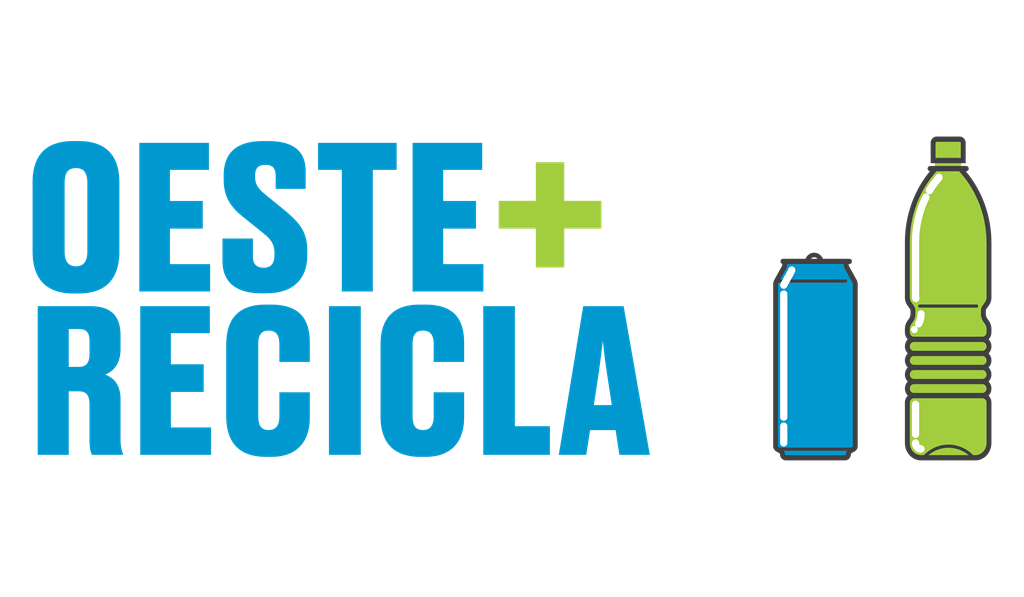
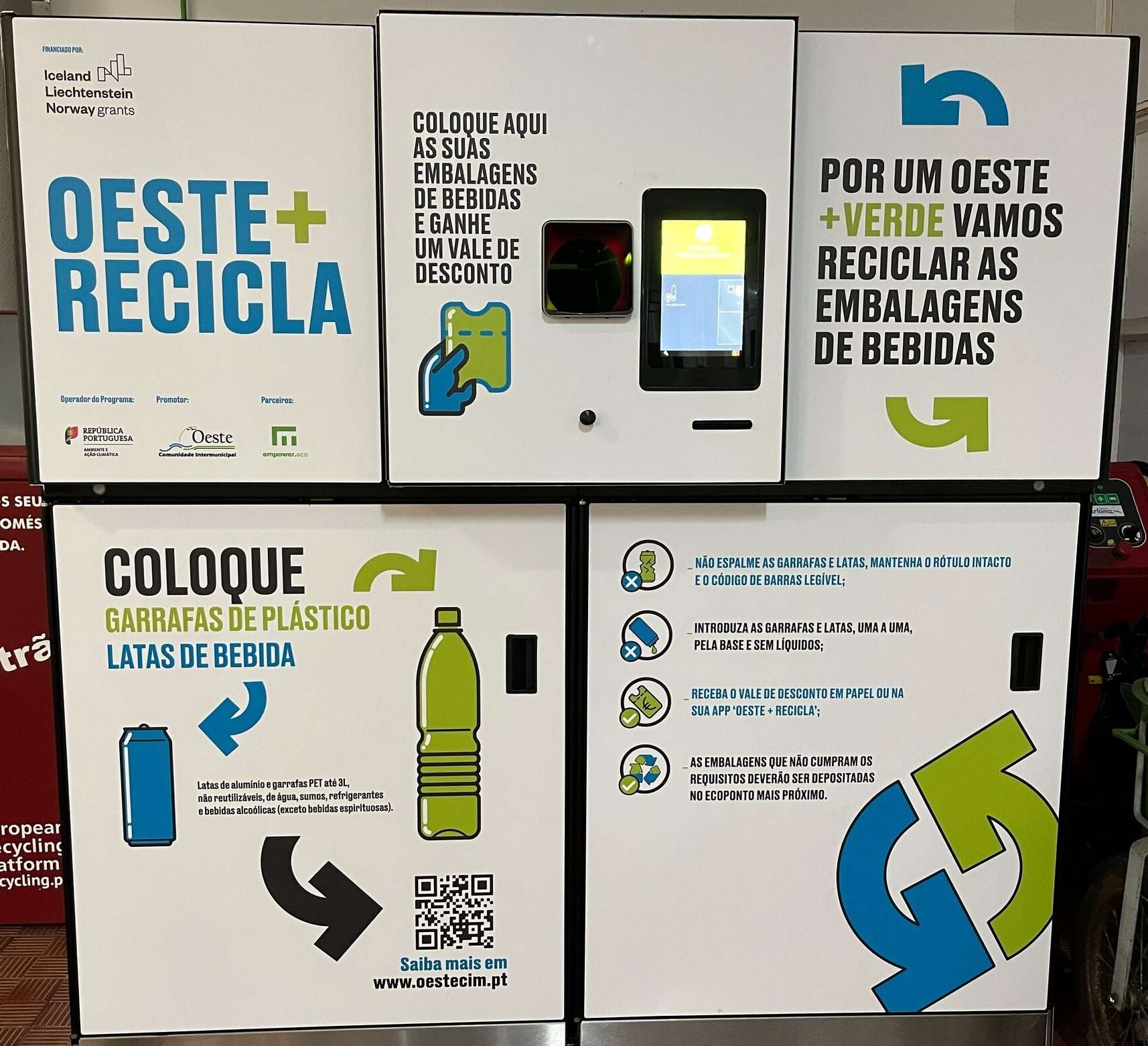
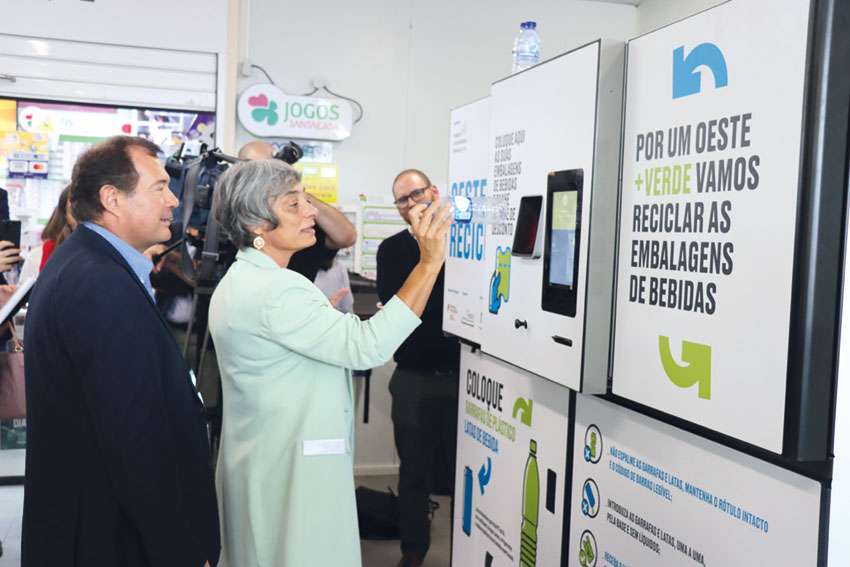
BI Defesa
The Defense data repository is fed almost entirely by data entered into the National Defense Integrated Management System (SIGDN), in the areas of Human Resources, Finance and Logistics, which are collected and processed by the General Staff of the Armed Forces (EMGFA), the Armed Forces Branches, IASFA and the Central Services of the Ministry of National Defense.
To these transactional data are added analytical data, originating from the SIGDN system transactional data, which after extracted from the source system and transformed by routines run daily, are loaded into their own data structures, forming a Data Warehouse, which allows for the analysis of data from various perspectives, as well as to observe its evolution over time, thus taking greater advantage of the large volume of data, which would not otherwise be possible.
The ability to create more value from all this National Defense data, taking advantage of modern tools with advanced analytical capabilities in predictive and prescriptive aspects, using emerging technologies of machine learning and artificial intelligence, making them available to users in a very accessible, flexible, self-service and reusable way, allowing them to make more and, above all, better decisions, are the structural changes that this project aims to achieve.
The intention is to make stored data available in the form of valuable and reliable information to support decision making. For this purpose, data internal to the National Defense may be complemented by external data of various kinds, structured and unstructured, making use of data from other Public Administration bodies or any other source.

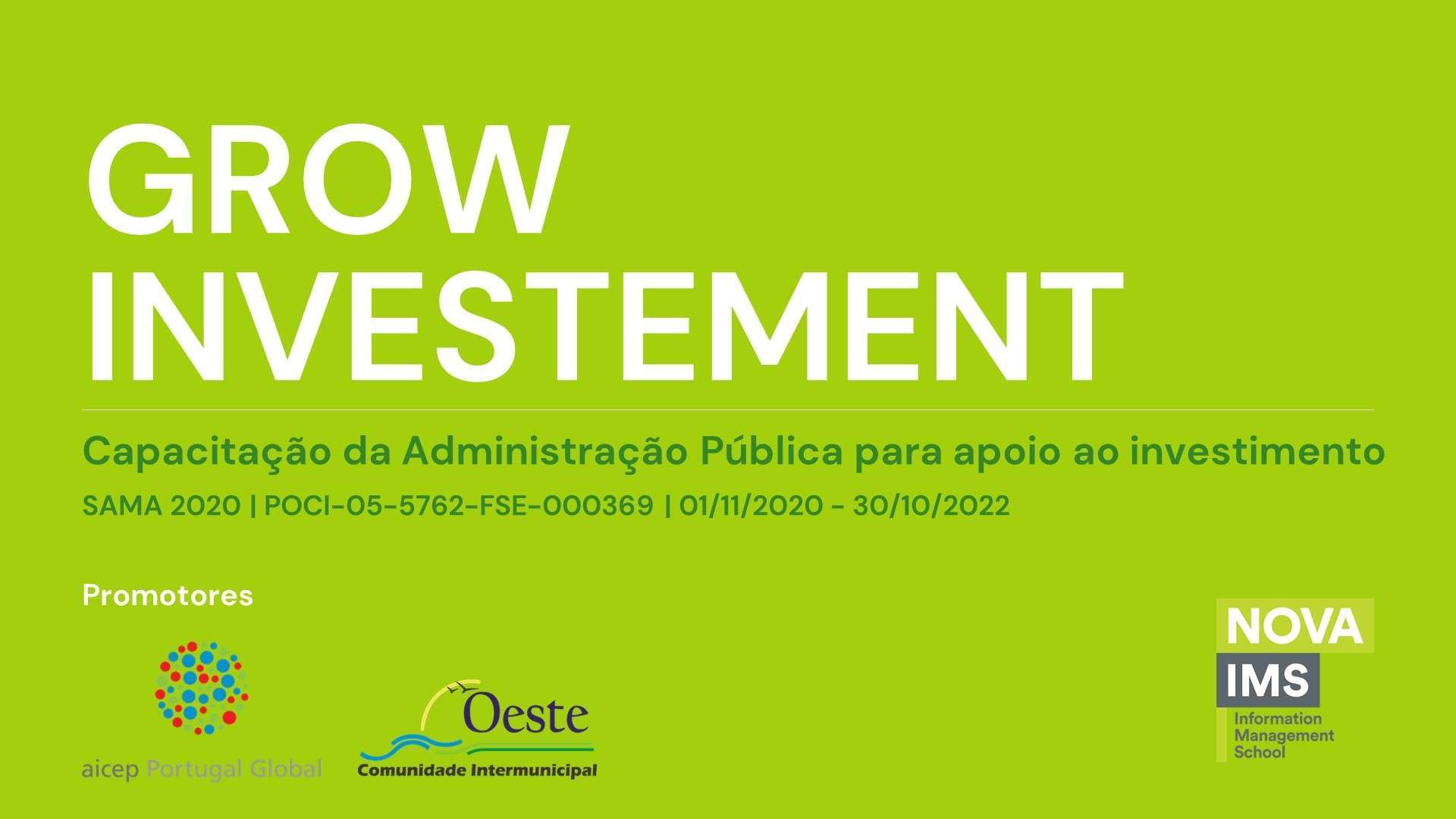
Grow Investment
The initiative aims to enhance the qualification of the territory of OesteCIM, for the location of investment projects in economic activities oriented to foreign markets that contribute to the creation of qualified employment and greater added value, through the improvement of services provided, in close articulation and coordination with AICEP, to respond to the needs of investors.
The project aims to provide the Intermunicipal Community of the West with the first integrated analytical platform for intermunicipal territorial intelligence that, in a big data and data science approach, will offer the ability to collect, store, process and analyze data from operating systems and networks of municipal sensors integrated with the data generated by the public Wi-Fi networks of the municipalities covered, change the tourism and hospitality planning and management paradigm in a Smart & Sustainable Tourism approach.
Understanding the interaction of people with the territory of CIM Oeste, based on data from the registration and use of Wi-Fi access points (involving the space and time dimensions in the analysis), the project will provide an application that better the experience of those who visit , lives and works in the intermunicipal community taking advantage of the crossing of data from municipal operating systems with data originating from Wi-Fi networks, aiming to provide dynamic information in space and time and supporting contextual marketing actions.
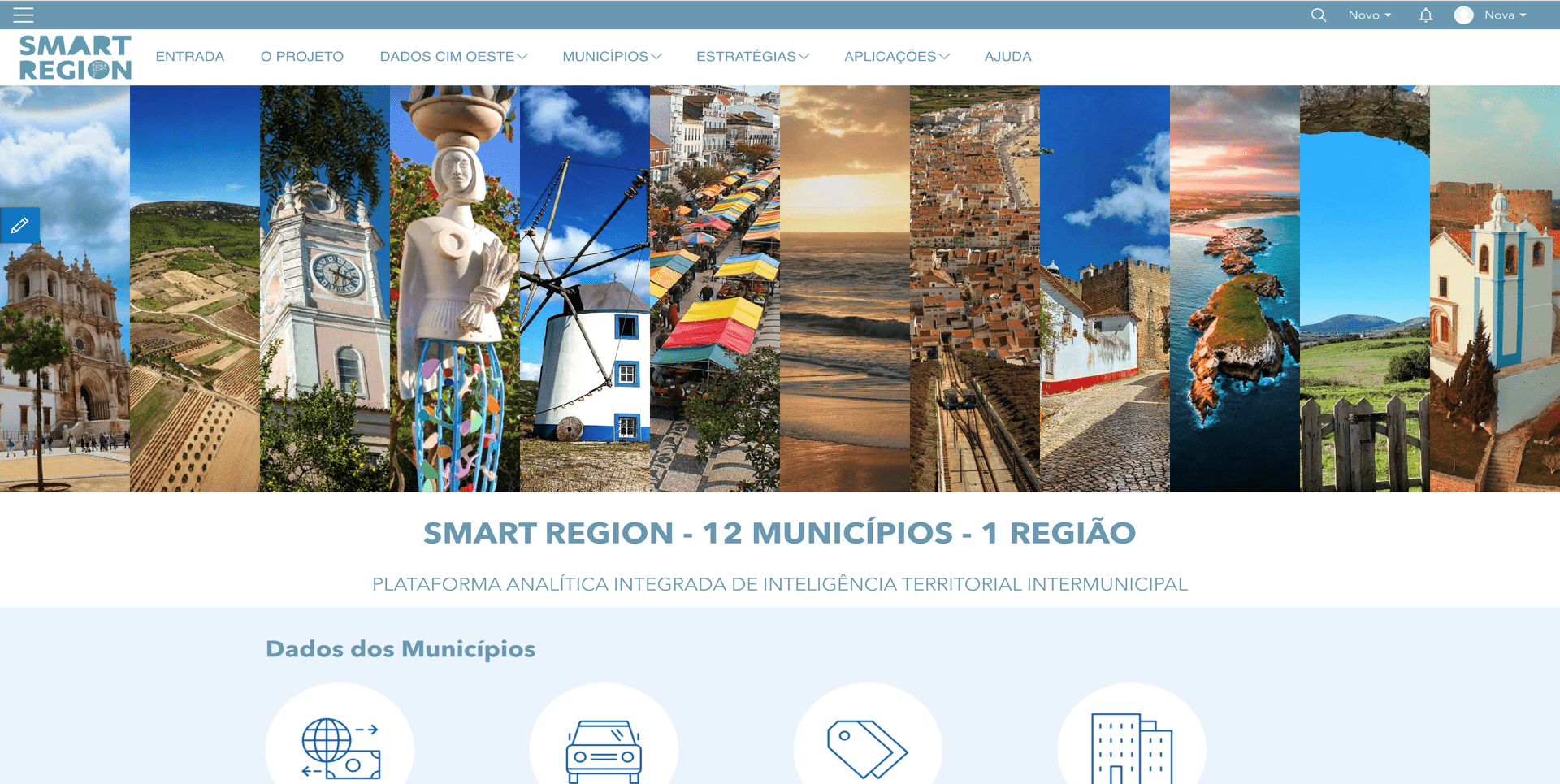



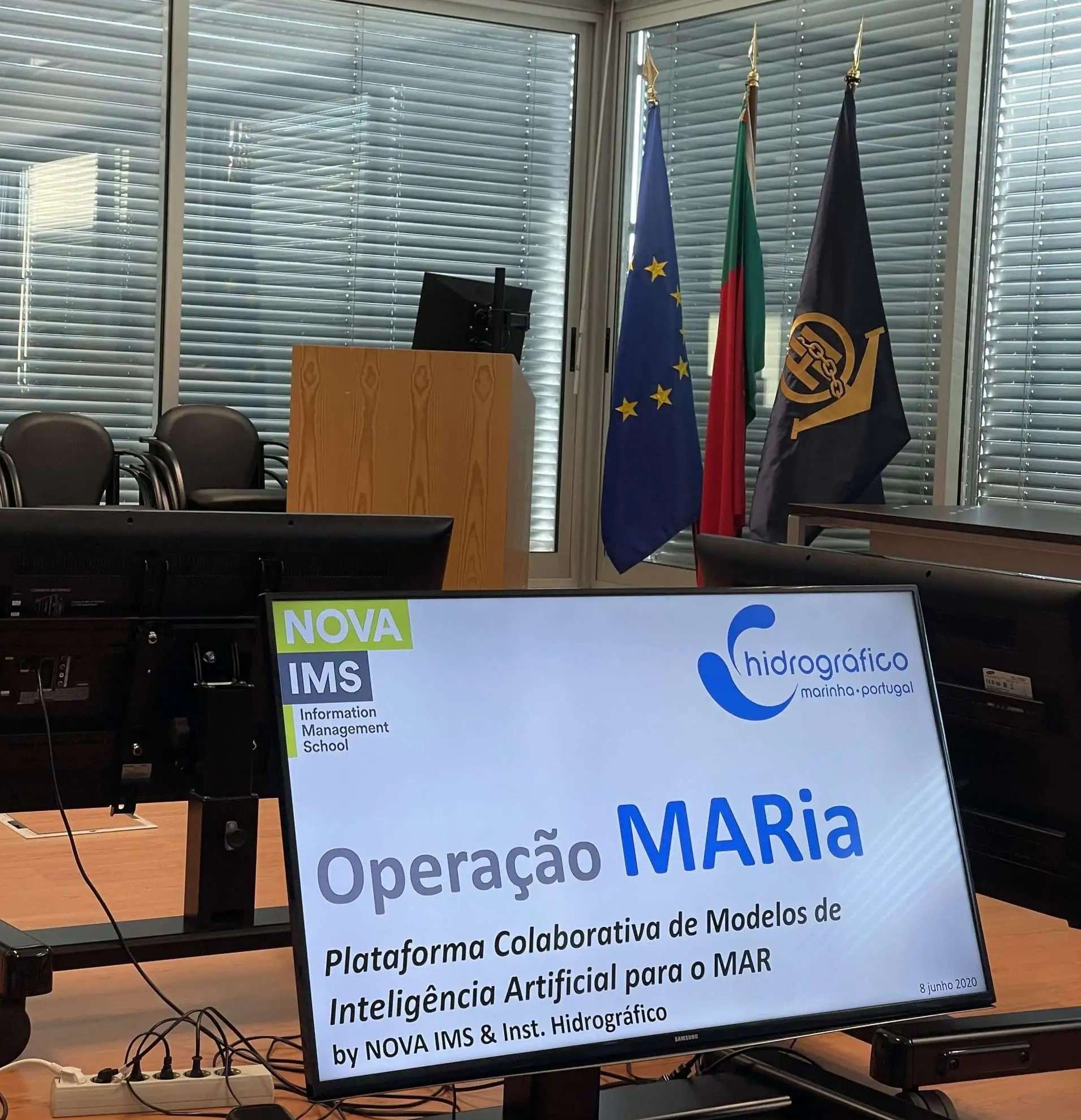

Plataforma Integrada de desenvolvimento de modelos de Inteligência artificial para o mar MarIA / Integrated platform for the development of artificial intelligence models for the sea MarIA
Project focused on the sea and based on the potential of the multiple data sources currently available (big data) and having as a starting point the existing data infrastructures, the Internet of things and operating systems.
Operation MarIA intends to develop a national model of data governance and the creation of value over it, taking advantage of data science and artificial intelligence, based on the collective intelligence of actors working in this area through the creation of the Collaborative Platform of Intelligence Models Artificial for the Sea – MarIA.
The MarIA Platform:
- will be able to leverage the creation of a data science and intelligence center with descriptive, predictive and prescriptive analytic capabilities;
- will promote the creation of information products and services for the administration, companies, academia and citizens;
- will be focused on the sea area.
Additionally, and taking advantage of the platform to be created, launch a training and innovation program aimed at enhancing the co-creation of new analytically based products and services.
Access the IH GeoPortal H+.
Discover and follow the set of Warnings for Mariners, Navigation and Meteorological Warnings available on AnavNet.
Video presentation of the digital itineraries application INAVPilot.
Video presenting the results of the MarIA project.
Projeto Piloto de Gestão Inteligente da Orla Costeira SMART BEACH/Smart Coastline Management Pilot Project SMART BEACH
The “SMARTBEACH” project aims to increase the maritime safety capacity, to increase the safety of bathers and other users of the space corresponding to the Maritime Public Domain, to improve the prevention and safeguard of human life, and also provide electronic services to the public administration and citizens.
The project will make it possible to transform the way in which the State acquires, treats, shares and uses information relating to the enjoyment of the coastline, especially in beach and bathing areas, particularly in terms of prevention, safety, flow management, planning and management economic activities, with a direct impact on the security of citizens.
The SMARTBEACH Project aims to develop an IT platform that collects and handles all the information available in the various bodies and structures of the National Maritime Authority and Local Authorities, as well as other public entities such as the Portuguese Environment Agency (APA) and of the Institute for the Conservation of Nature and Forests (ICNF), with responsibilities in the field of safety and management of the territory on the coastline, allowing its insertion in a database, enabling its analysis and relationship with internal and external information, developing interfaces with other systems. This territorial intelligence platform (pilot project) will provide territories with an analytical tool capable of supporting governance in prevention, security, planning and management decisions.
As a pilot, the Oeste region was selected for its tourist potential, as well as for the conditions offered by its beaches, due to its conditions and population density.
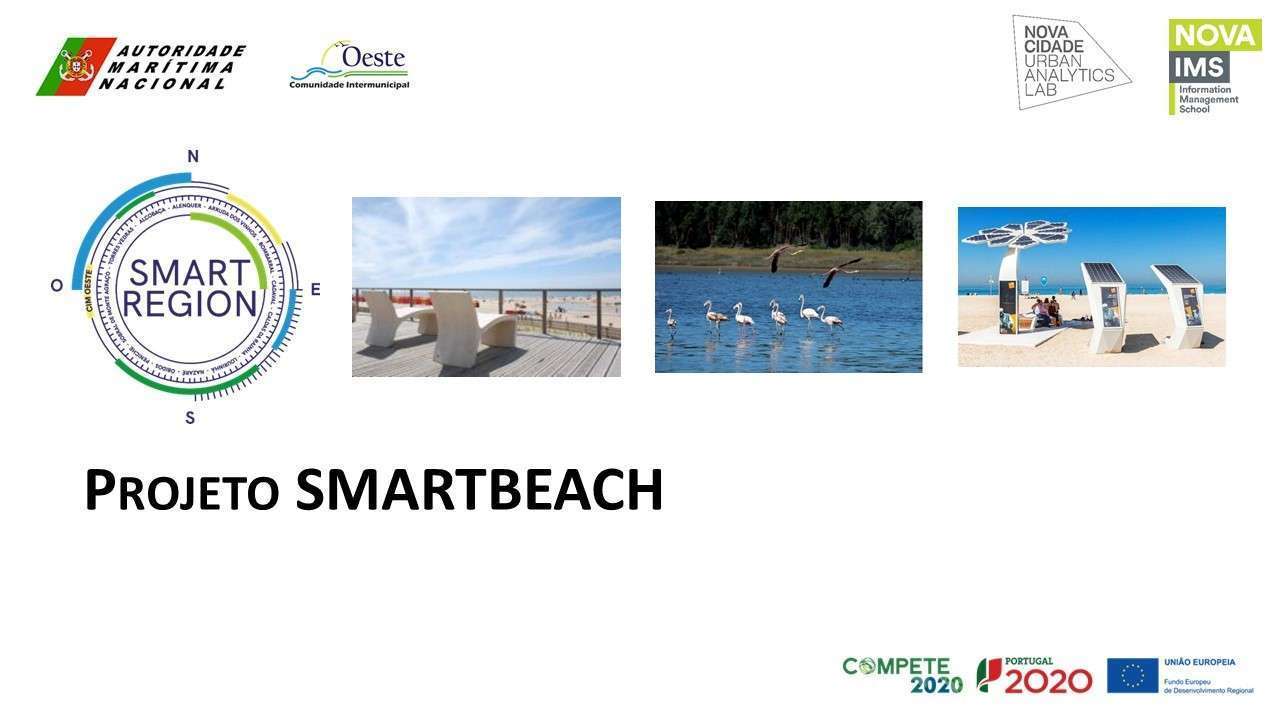
Projeto Piloto de Gestão Inteligente da Orla Costeira SMART BEACH/Smart Coastline Management Pilot Project SMART BEACH
The “SMARTBEACH” project aims to increase the maritime safety capacity, to increase the safety of bathers and other users of the space corresponding to the Maritime Public Domain, to improve the prevention and safeguard of human life, and also provide electronic services to the public administration and citizens.
The project will make it possible to transform the way in which the State acquires, treats, shares and uses information relating to the enjoyment of the coastline, especially in beach and bathing areas, particularly in terms of prevention, safety, flow management, planning and management economic activities, with a direct impact on the security of citizens.
The SMARTBEACH Project aims to develop an IT platform that collects and handles all the information available in the various bodies and structures of the National Maritime Authority and Local Authorities, as well as other public entities such as the Portuguese Environment Agency (APA) and of the Institute for the Conservation of Nature and Forests (ICNF), with responsibilities in the field of safety and management of the territory on the coastline, allowing its insertion in a database, enabling its analysis and relationship with internal and external information, developing interfaces with other systems. This territorial intelligence platform (pilot project) will provide territories with an analytical tool capable of supporting governance in prevention, security, planning and management decisions.
As a pilot, the Oeste region was selected for its tourist potential, as well as for the conditions offered by its beaches, due to its conditions and population density.

The Região Inteligente do Algarve (RIA) was a challenge launched at the 1st meeting of the Regional Innovation Council of the Algarve (CIRA), this Council being an advisory body to the Algarve Regional Coordination and Development Commission (CCDR Algarve), foreseen in the Regional Strategy for Research and Innovation for Intelligent Specialization (RIS3 Algarve) involving about 70 entities. After approval by CIRA members, a working group was created composed of supra-municipal entities and specialists to discuss this issue and point out ways to achieve the RIA.
This application aims, therefore, to strengthen the training of the entities that integrate the partnership, namely the respective technical teams, but also to contribute to the training of regional stakeholders, involving them and making them an effective part of the joint construction processes of the Algarve Smart Region, based on the digitization of the economy and the promotion of regional development.
For the materialization of this application, the importance of networking is highlighted, being presented by a partnership led by CCDR Algarve and with the following entities: Universidade do Algarve, Algarve Tourism Region and Algarve Intermunicipal Community (CIM Algarve) .

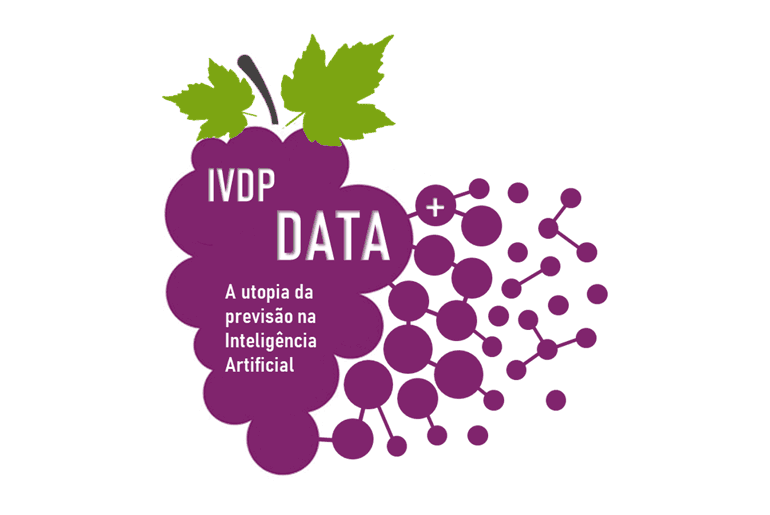
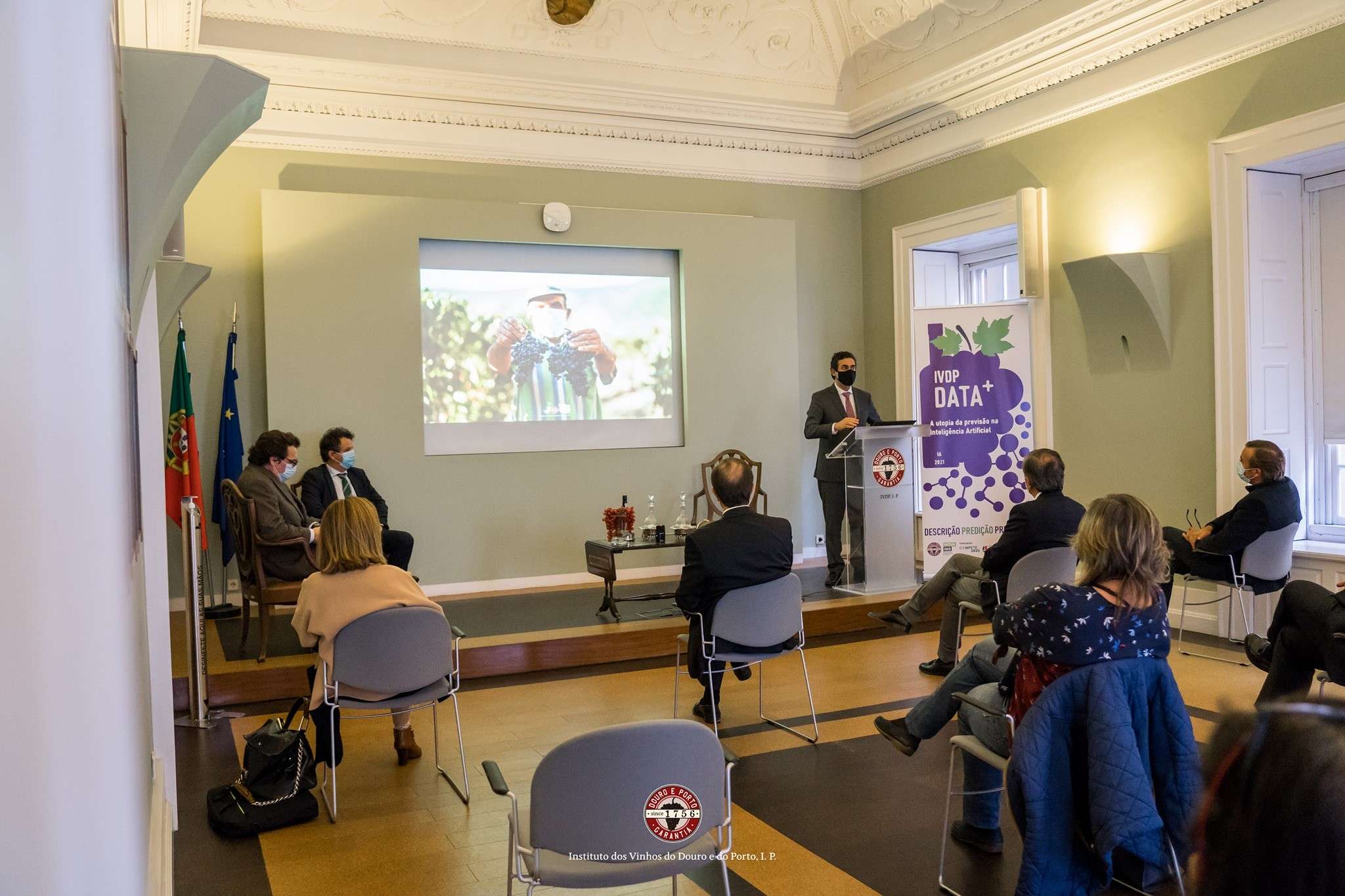
The implementation of the AI model will allow to support decision making based on the treatment of existing data.
Read more

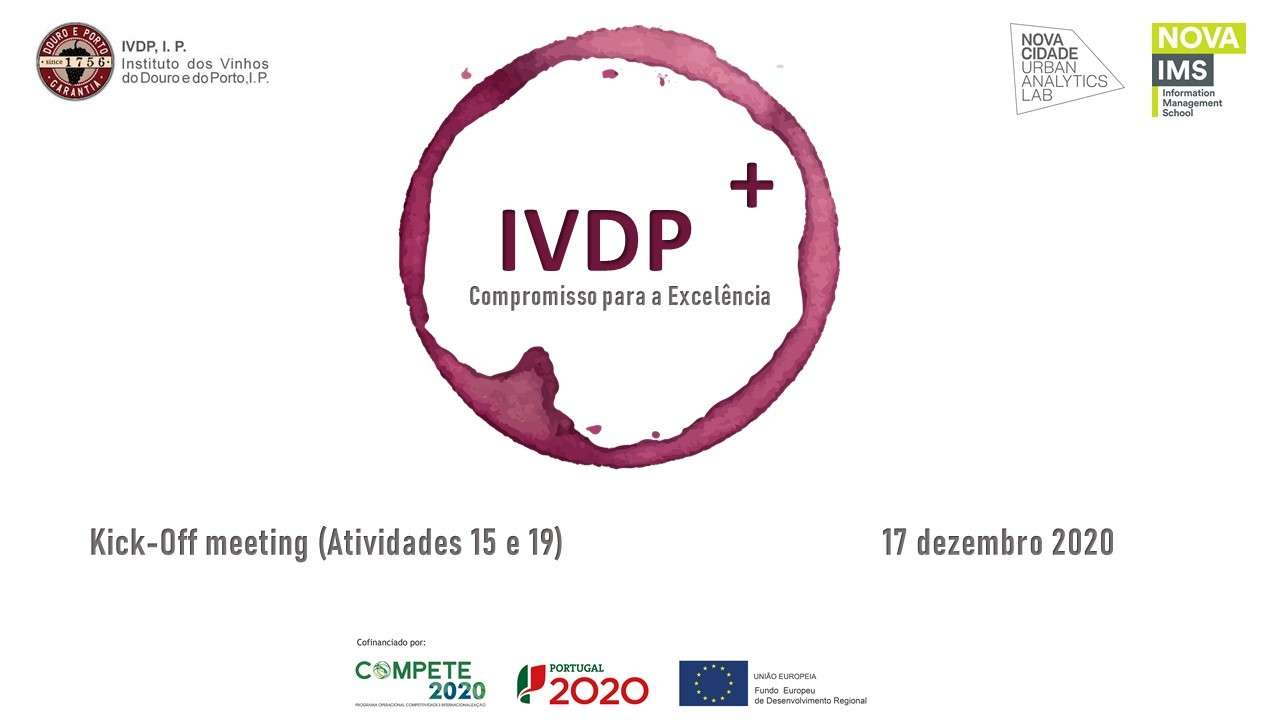
visibility of the Douro Demarcated Region (RDD) and its actors.
With the project, the IVDP I.P. public service, using the most advanced technologies linked to artificial intelligence, the most modern process management methodologies (BPM) and without ever losing sight of the interoperability of systems and technological alignment, enhances the robustness of the RDD + project, its reliability, its sustainability and innovating in tools, management processes and interaction with customers, both for the IVDP IP itself and for the economic agents in the region.
The benefit is also extended to its customers, citizens and companies, national and international, strengthening the sustainability of agents and the region, allowing their activities to develop with the guarantee of data protection and information security.
The IVDP + project positions IVDP, I.P as the leverage body for the Region, its products and the image of a public administration (AP), which is closer, more agile and proactive.

i-Território: Modelação Inteligente do Acesso Territorial a Serviços de Interesse Geral
- Sectorial perspective: Addresses the structured organization of equipment and services, seeking to ensure universal coverage for all citizens
- Territorial perspective: Approach based on the characterization of the national territory and its specificities, referring to a spatial expression of asymmetric supply and demand for territorial diversity. The territories are different and for that reason they will bring constraints to the way each citizen will actually have access to these services.
The general objectives of this operation are as follows:
- Support the General Directorate of Territory (DGT) as the entity responsible for planning the national territory, to implement the instruments that allow it, based on an innovative strategy to point to a decentralized and interoperable approach, based on open data and involving the participation of various bodies of the Public Administration and one or more universities/research centers, provide information on citizens’ access to General Interest Services;
- Support DGT in the exercise of its attributions, to implement a prototype based on equipment data from relevant sectors: Health; Education, Social Security and Sports
- Support the DGT in the regular monitoring and evaluation of land use and urban planning policies and sectoral policies with an impact on the organization of the territory;
- Strengthen the capacity for integrated analysis of information, namely in terms of services of general interest;
- Increase the production of territorial knowledge and innovation in terms of territorial management;
- Have a support instrument for the Spatial Planning and Urbanism Observatory;
- Improve service levels and increase user satisfaction (focus on effectiveness);
- Greater and better interaction with the Public Administration, citizens and companies and clarification of processes and responsibilities regarding the production and availability of information.
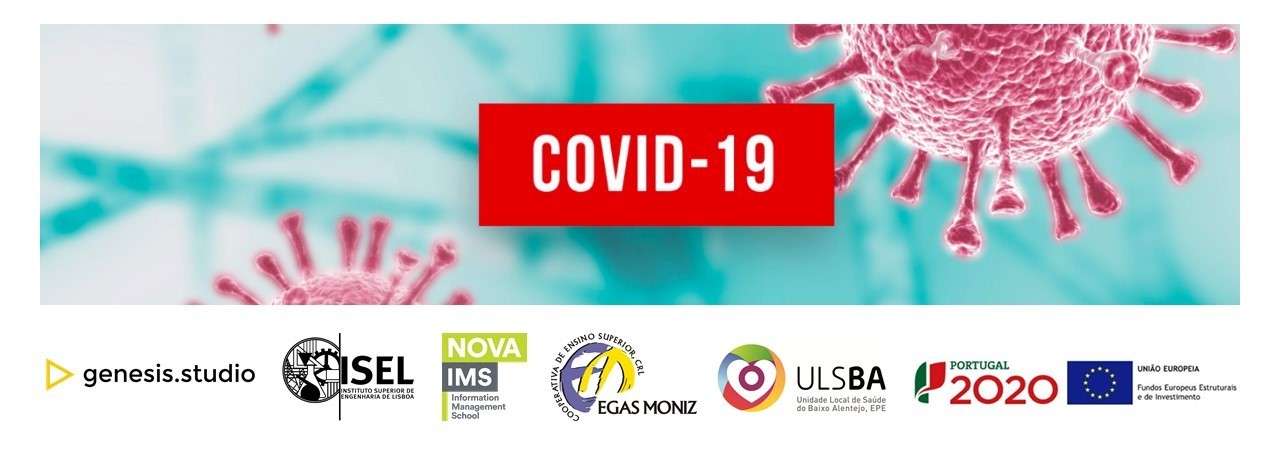
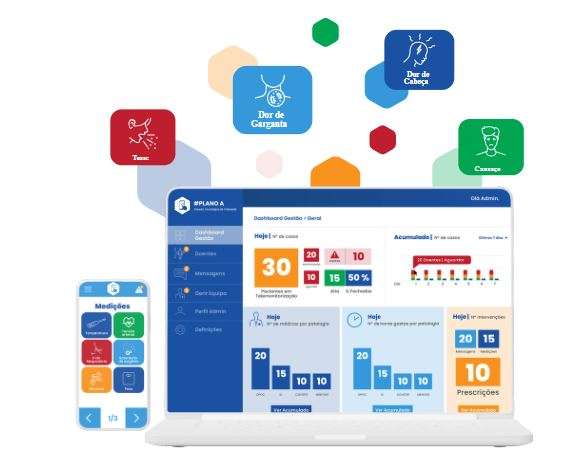
With the advent of COVID-19, it became even more imperative to diagnose, treat and monitor patients through telehealth, minimizing the movement of citizens to health institutions, maintaining the continuum of care and improving the quality of services provided by the NHS. In technological terms, natural evolution involves increasing the use of various digital channels, starting by optimizing the sharing of information in good time between citizens with illness and the various health agents through more advanced digital interfaces, and new support tools diagnosis and decision for doctors and health professionals. It is for this purpose that the PLANO-A-SAÚDE-C19 is developed.
The mapping of the needs and requirements of doctors and citizens with the pathology that can be served by the platform was done by ULSBA and EM, institutions that provide healthcare in these areas. The design and architecture of the platform was developed in a consortium between GS, ISEL, NOVA IMS, EM and ULSBA. The platform includes components designed to support the activities of the outpatient monitoring process.
The solution will also allow patients to have a more active role in various decision-making processes, being more involved in controlling their disease and relating more effectively and closely with their doctors and health units.

In the context of combating a pandemic such as that currently caused by the outbreak of COVID-19, and considering that a large part of the problems that occurred were difficult to anticipate, it is now clear that the response capacity and, above all, the effectiveness of the solutions developed, it will significantly benefit from a greater sharing of information between the multiple levels of management of our society.
The Data4Covid19 project proposes the development of a platform that enhances the crossing of multiple data sources in an integrated manner, allowing the relevant entities in each of the areas of action to design, implement, and monitor, in an articulated way, measures to combat pandemic.
The proposed action plan intends to guarantee the availability of instruments that contribute, from now on, to a better management of the current situation, but also, that enables an effective retention of knowledge, fundamental for the future combat of situations of the same type, whether in planning and construction of public policies, either in management. Through the ability to aggregate and process multisectoral information, it will be possible to obtain real-time indicators of the measures implemented, in terms of risk management and impact assessment in each of the phases.
This is an application to the R & D Companies typology, in the co-promotion modality, with the promoting consortium consisting of 3 non-business entities from the national I & amp; I system and 2 companies: the Porto Digital Association, the project’s leading entity, the University do Porto, Universidade Nova de Lisboa, NOS COMUNICAÇÕES, SA and TekPrivacy, Lda, as co-motors.
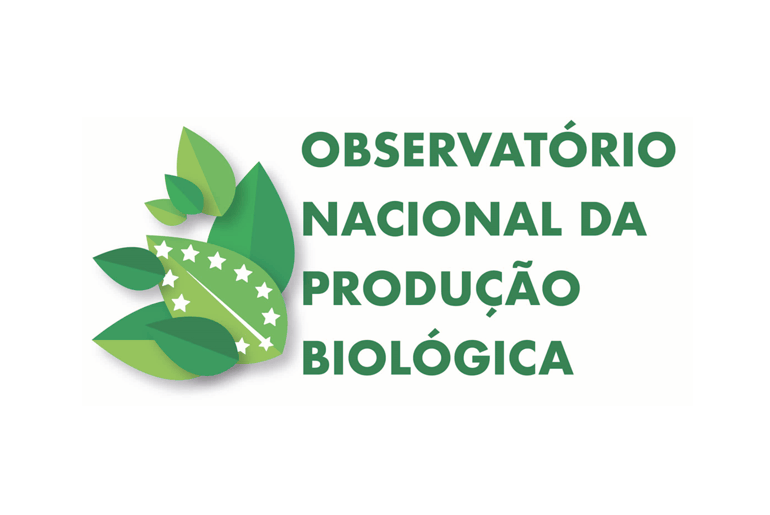
Provide the Observatory with a strategy for the development of a data infrastructure that will support the construction of online monitoring dashboards of the evolution of indicators for monitoring the Action Plan of the National Strategy for Biological Agriculture.
Activities to be developed:
- Constitution (creation and implementation) of a virtual platform for the National Observatory for Biological Production;
- Creation and development of an open data portal on desertification that gathers, in a single point, of free access, without charging the user, the information obtained within the scope of the Observatory’s activity, with interconnection to the relevant databases of other entities;
- Promotion and monitoring of the constitution and operation of online monitoring panels (dashboards), supported by the open data portal, for monitoring the relevant indicators in the context of the National Observatory for Desertification;
- Implementation of support activities.
More specifically, provide the Observatory with a strategy for the development of a data infrastructure that will support the creation of online monitoring dashboards on the evolution of tracking indicators.
Activities to be developed:
- Constitution (creation and implementation) of a virtual platform for the National Desertification Observatory;
- Creation and development of an open data portal on desertification that gathers, in a single point, of free access, without charging the user, the information obtained within the scope of the Observatory’s activity, with interconnection to the relevant databases of other entities;
- Promotion and monitoring of the constitution and operation of online monitoring panels (dashboards), supported by the open data portal, for monitoring the relevant indicators in the context of the National Observatory for Desertification;
- Implementation of support activities.
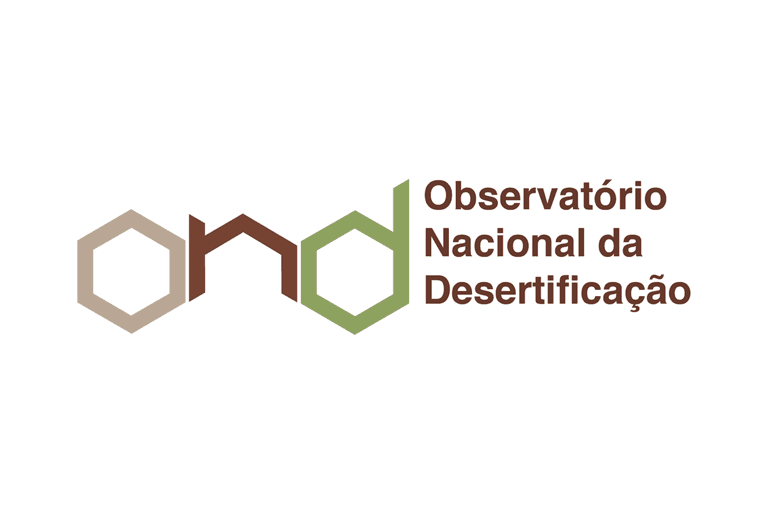
The operation involves a global investment of around 2.2 million euros, with 80% ERDF co-financing, aiming to deepen the simplification and dematerialization of processes, in a logic of harmonization between the various municipalities in the region and to consolidate the investments made in making available integrated public services online, through new platforms for interaction with citizens, companies and visitors.
The project consists of four major components:
- Process management: Process reengineering and architecture in specific areas of municipal services such as customer service, archiving and documents digitalization, occurrence management and event management, in a logic of simplification and dematerialization of processes.
- Communication: Provision of new tools for interacting with citizens, economic agents and tourists, through the creation of supramunicipal electronic platforms for the areas of occurrence management and event management and the development of new municipal portals that are more interactive and compatible with mobile devices;
- Image and dissemination: Creation of a corporate image, implementation of actions to promote and disseminate the activities of the project and the holding of a seminar to share experiences and good practices at national level;
- Project management: Coordination of the physical and financial execution of the application and representation of the partnership with the Management Authority of CRESC ALGARVE 2020.
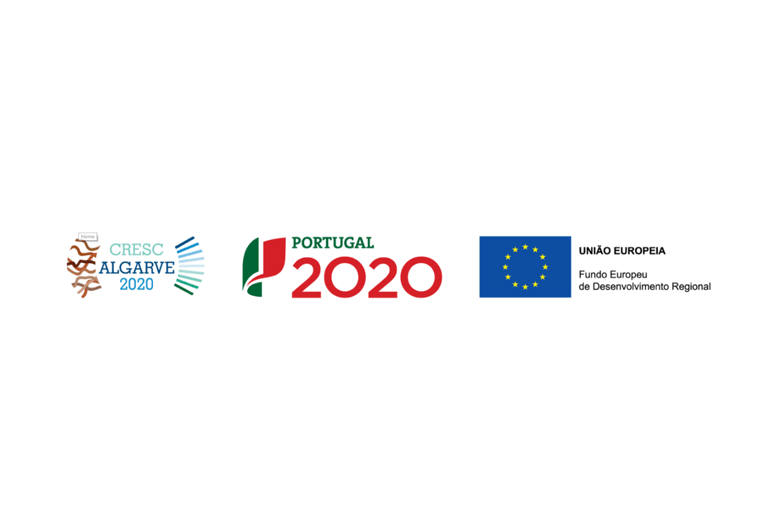
The Competitive Intelligence Center (CIC), is an Alentejo-scale R&I project, focused on valuing knowledge, using data, and transferring it to economic and business activities, from sectors and ranks of endogenous resources, with a view to technological development of companies, their internationalization and the promotion of competitiveness in national and international markets.
Through the analysis and management of information and data science, it is intended, in an analytical way, to create a competitive advantage, lacking, in what concerns the forecasts of demand and profile of the markets, substantiating itself in knowledge. This knowledge is transferred to companies, processing in the technological development of their products and services, adapting them to new patterns of demand and market trends, through for example a new packaging, a differentiating use of the product or even a new storage solution.
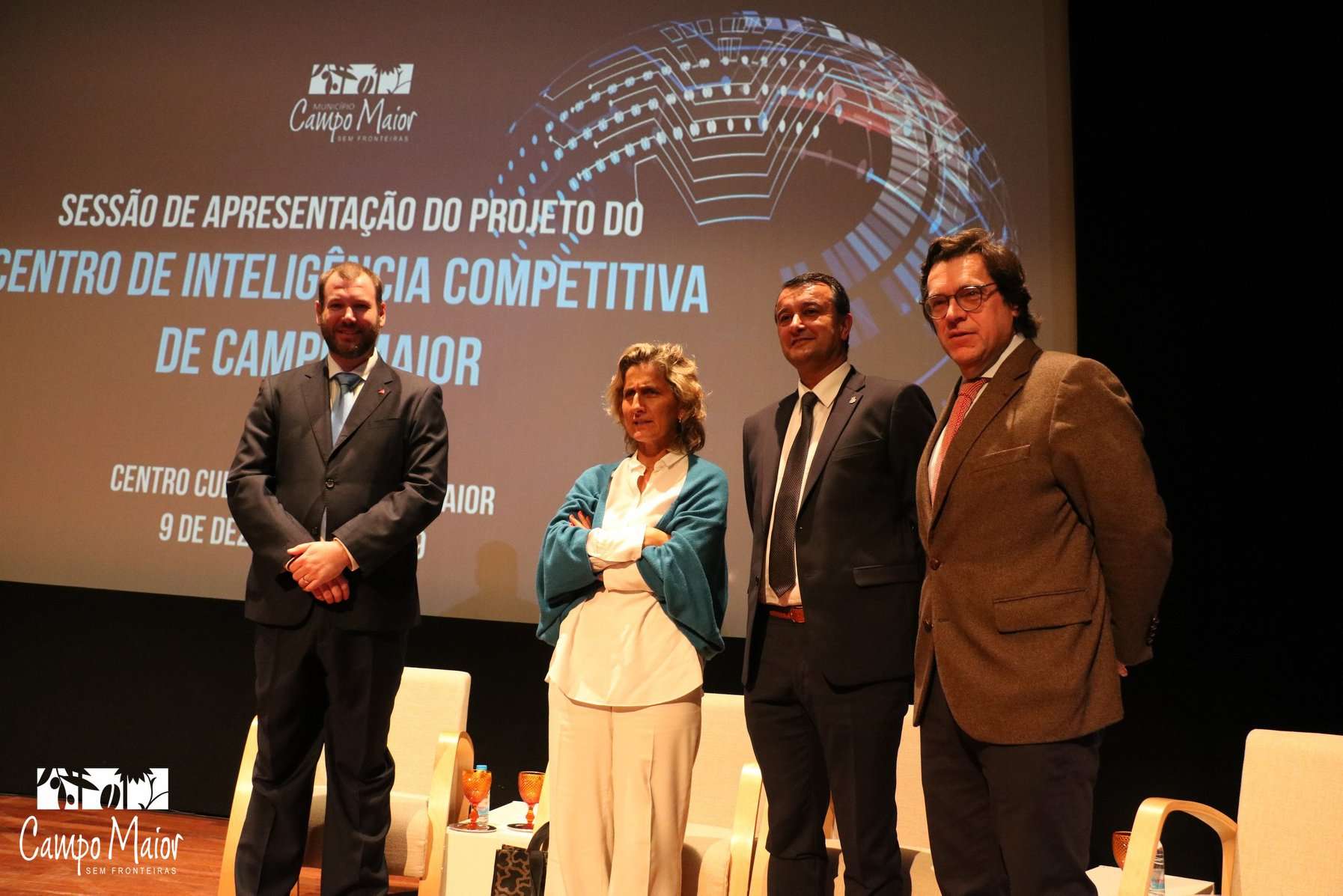
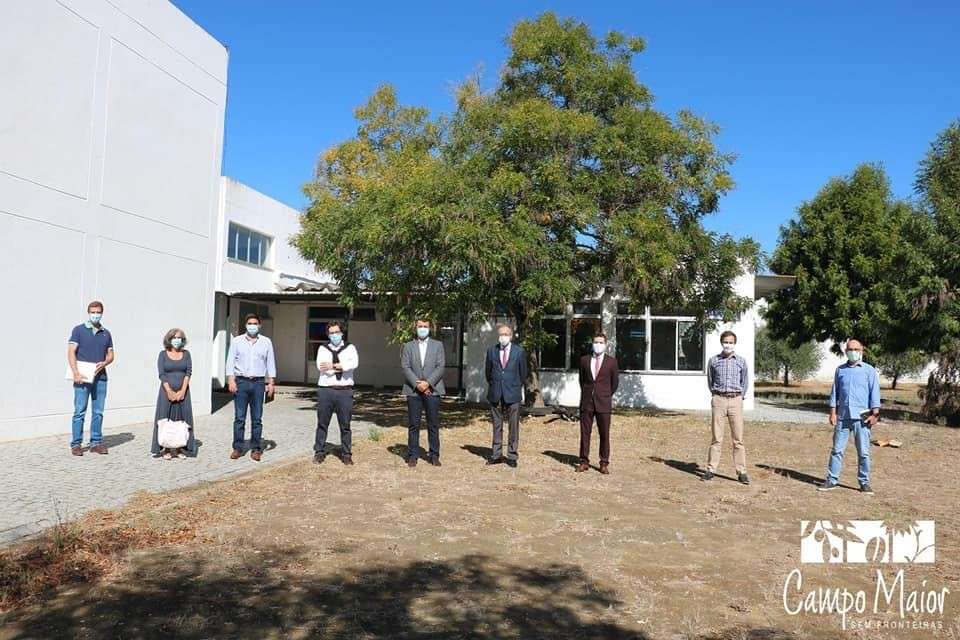
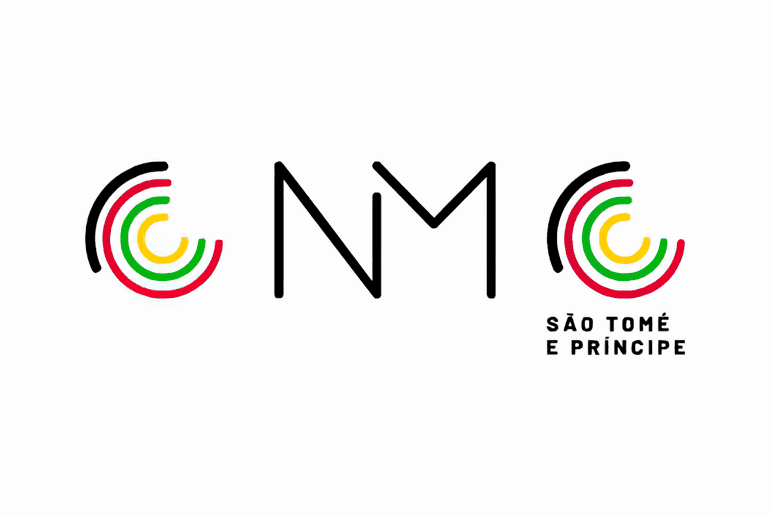
The CNMC is also responsible for ensuring that programs/projects are consistent with national priorities in relation to Climate Change, in terms of adaptation and mitigation. In this sense and with the financial support of the EU (AMCC Project) a dashboard was developed to follow external assistance to STP to reach the Determined Contributions at the National level (NDC) at the Climate Change level.
